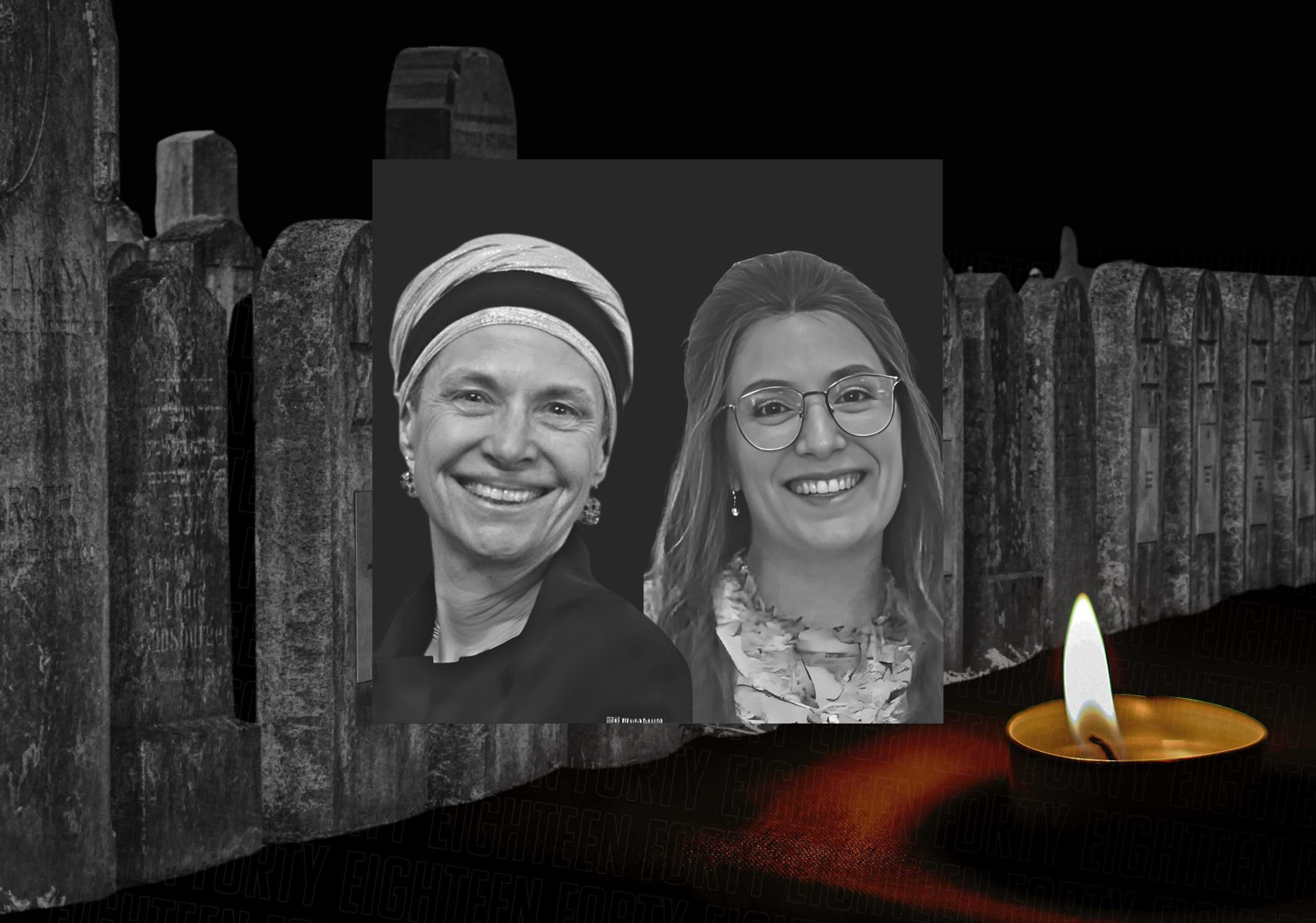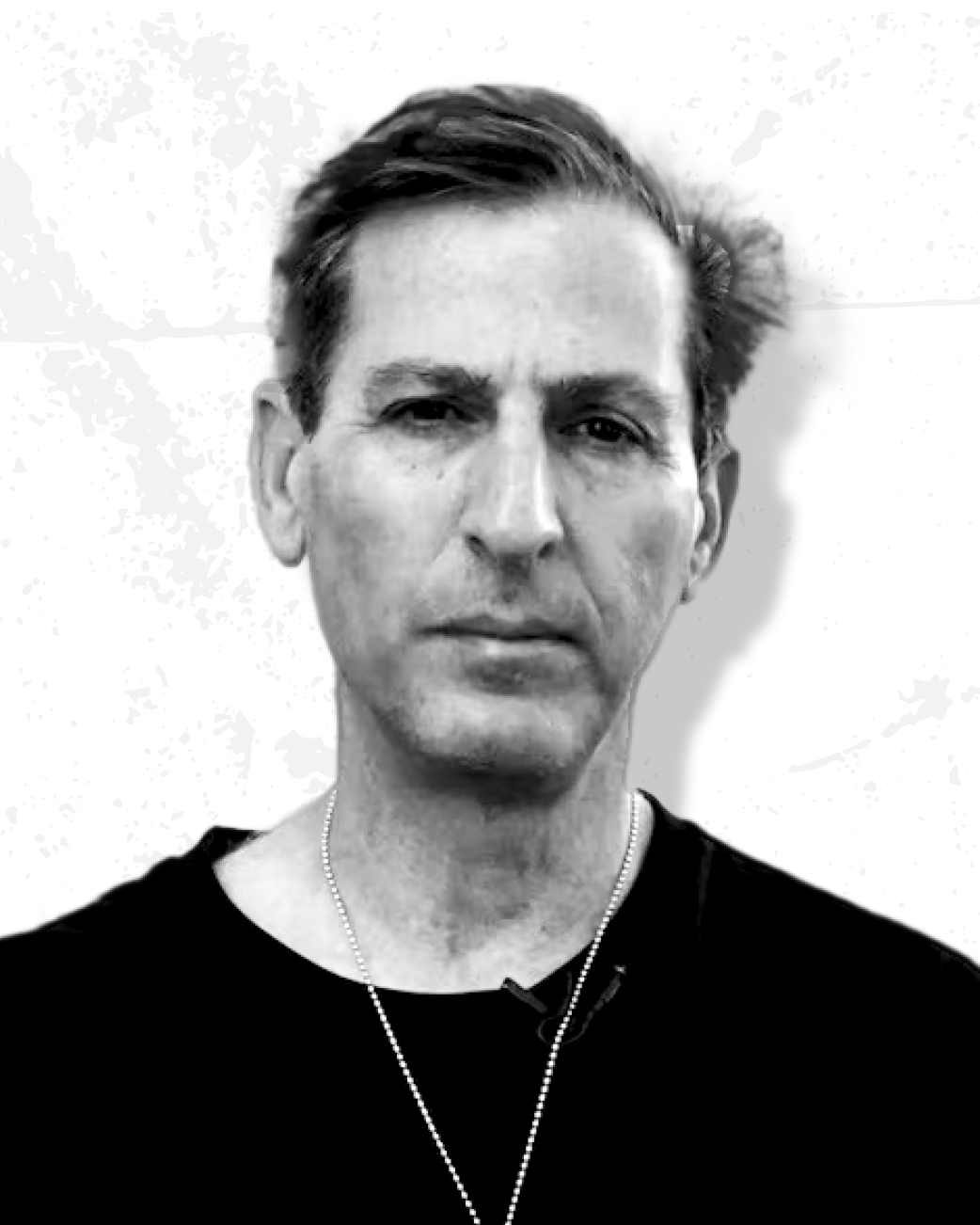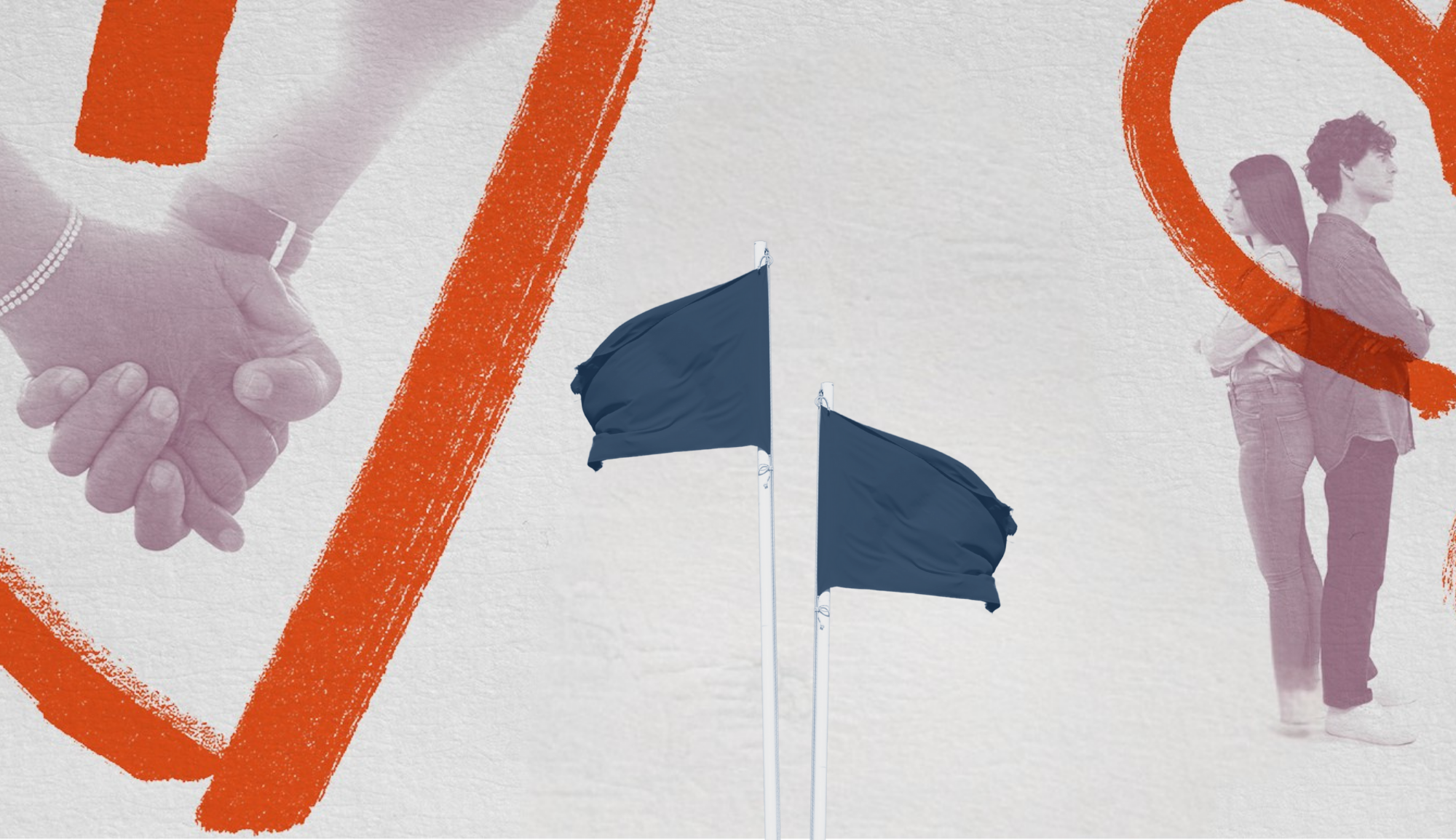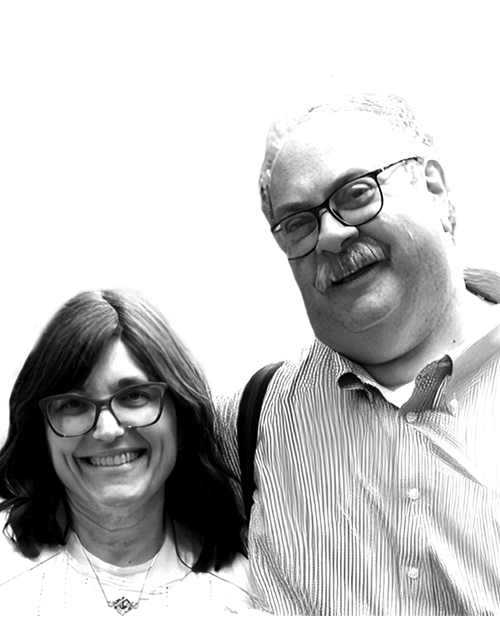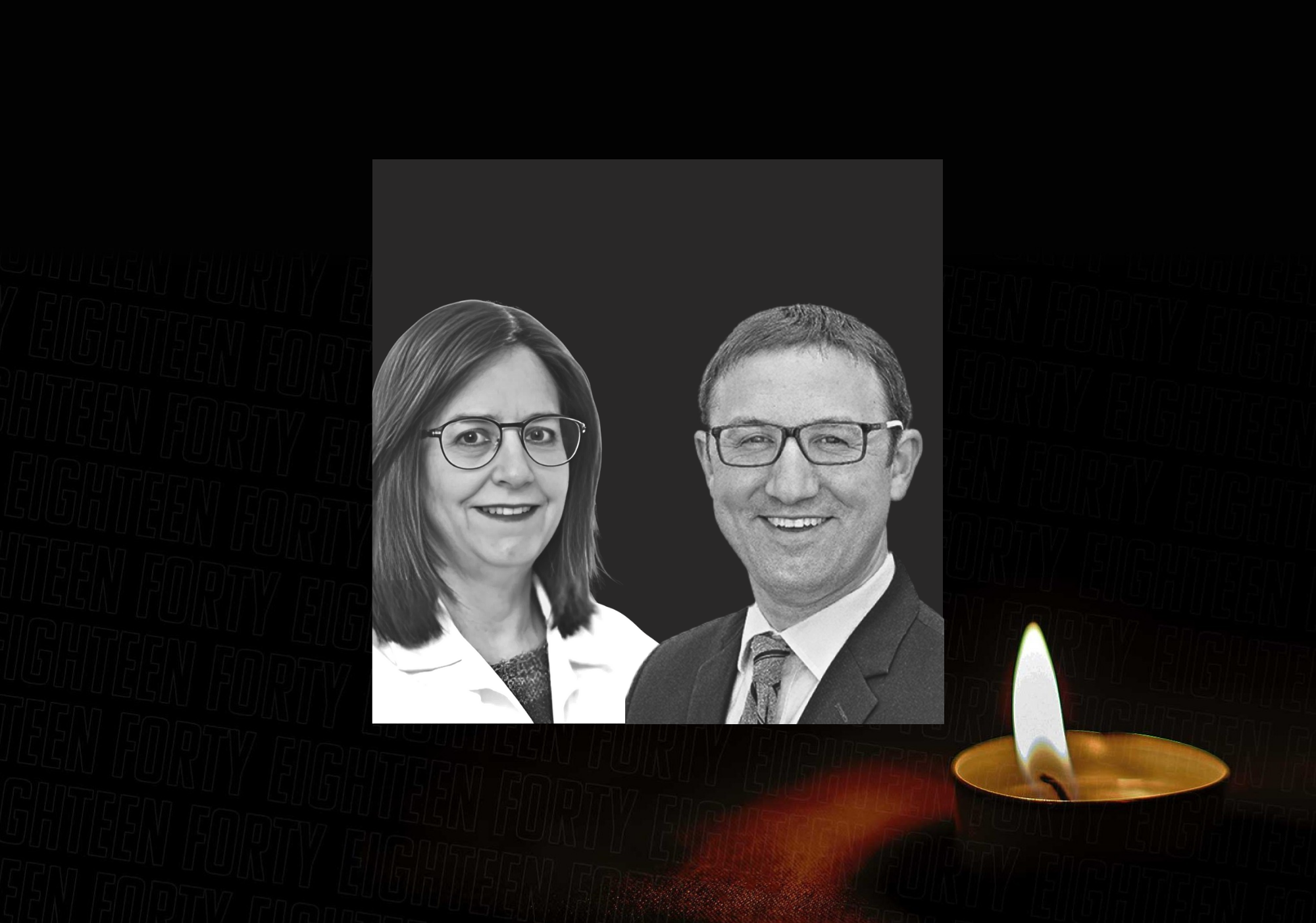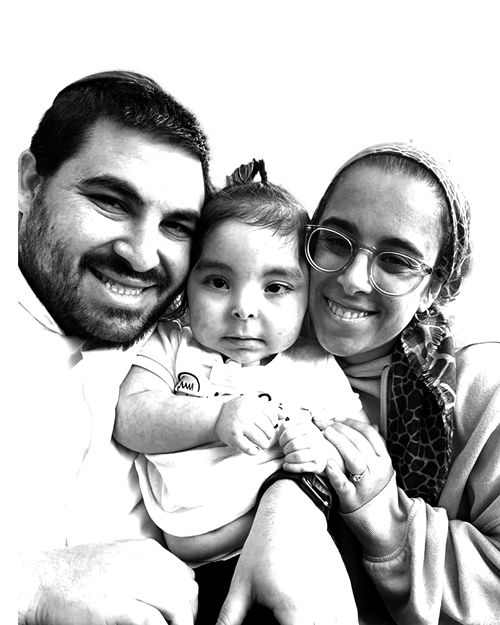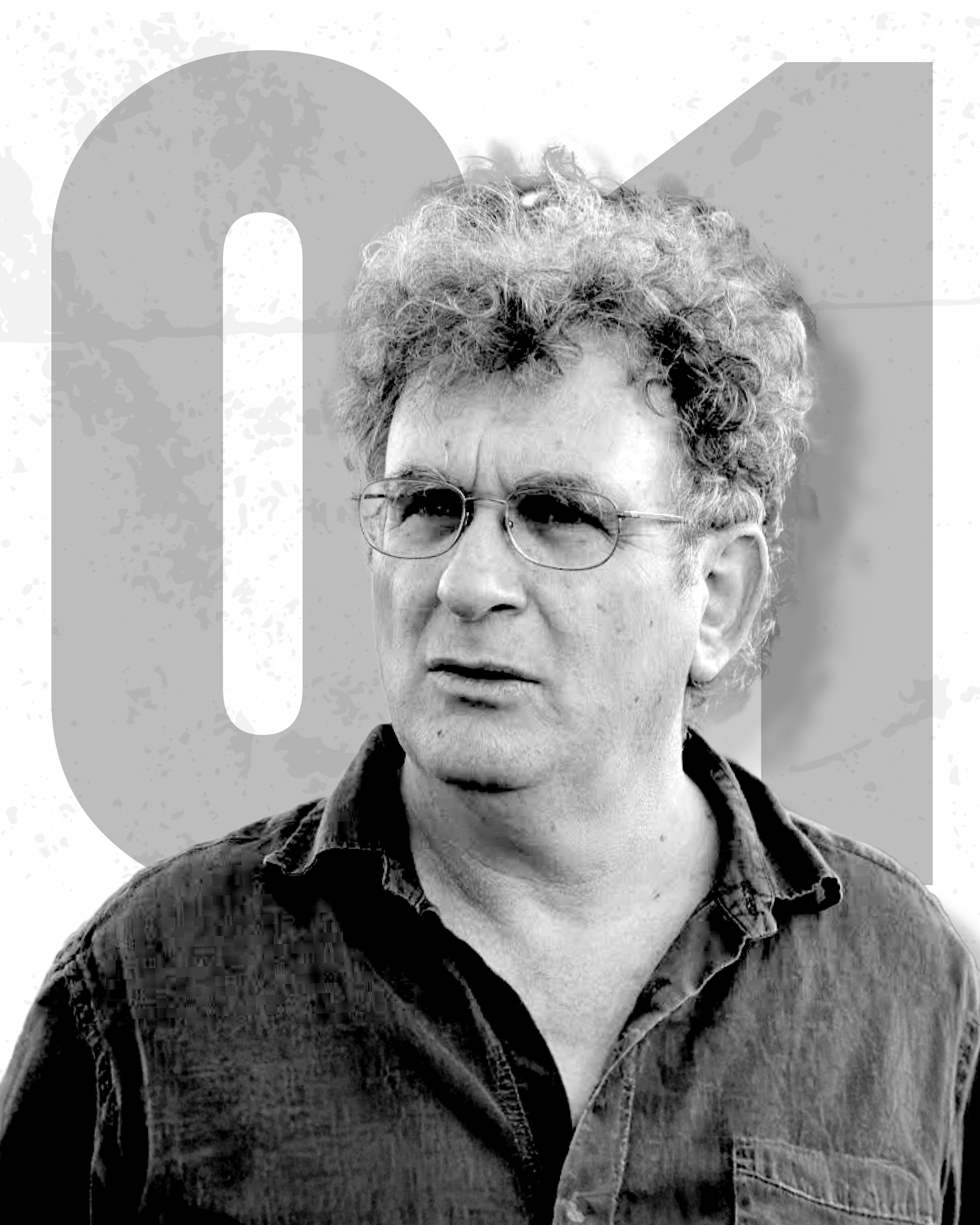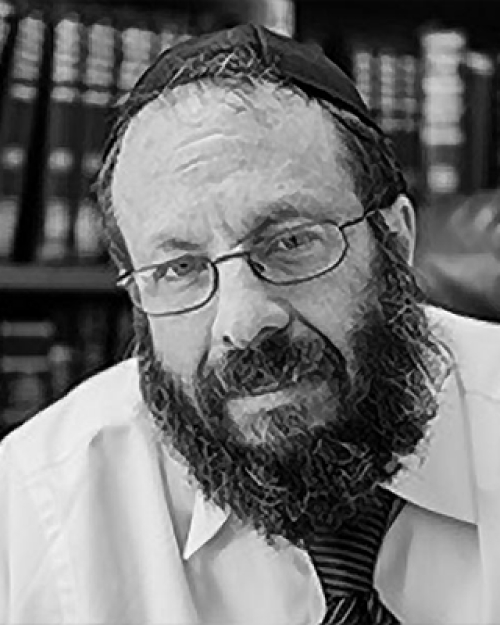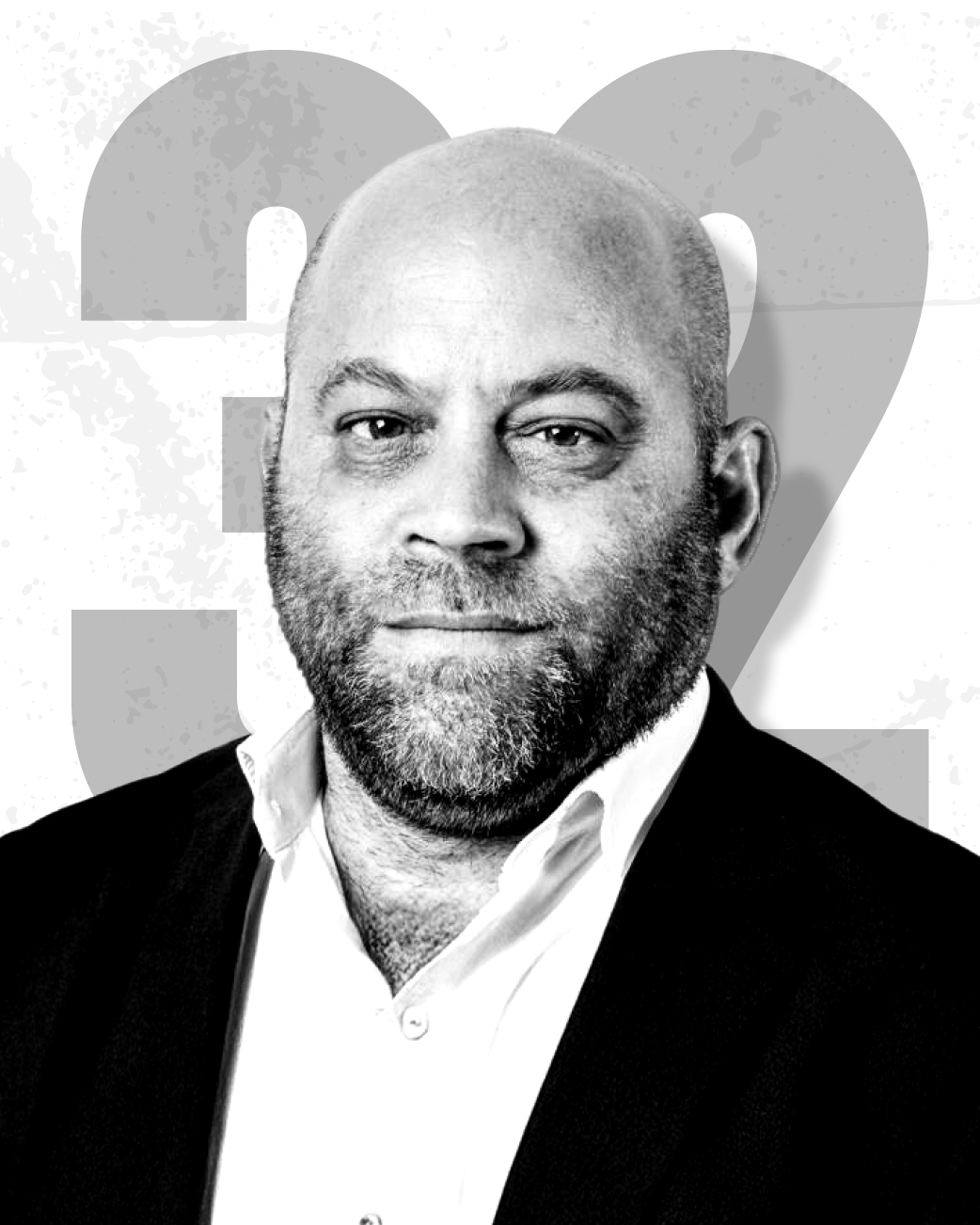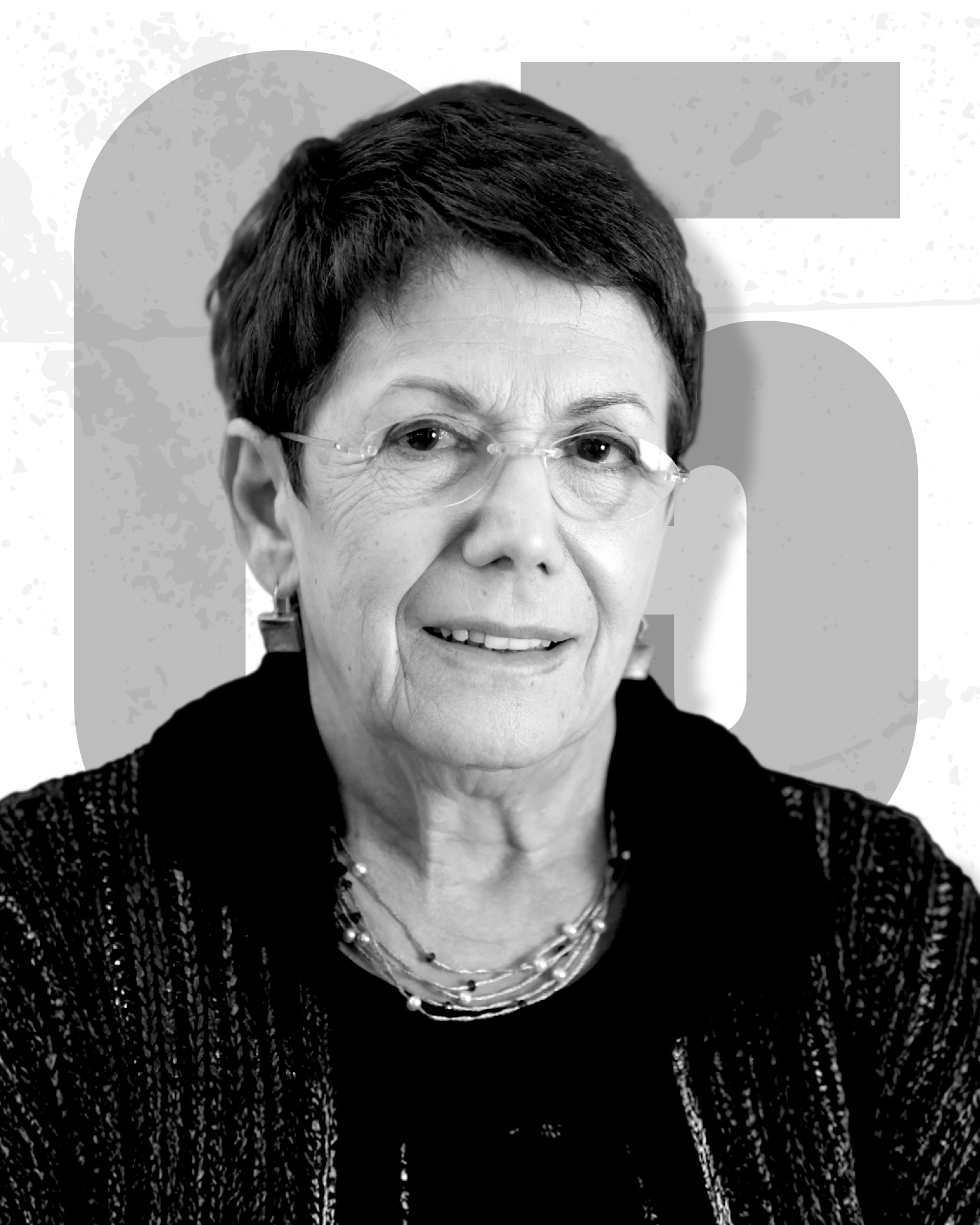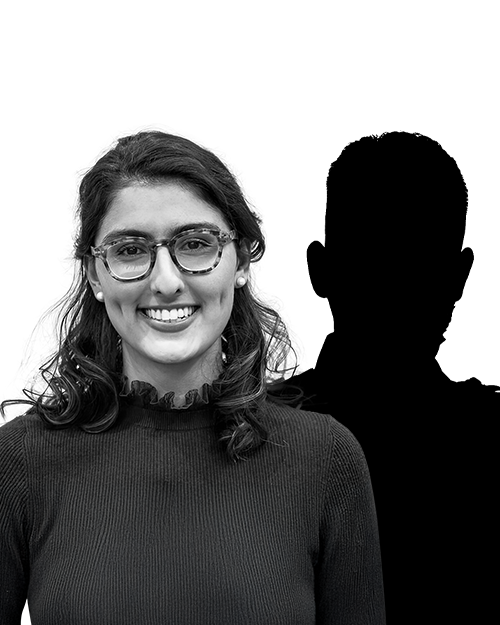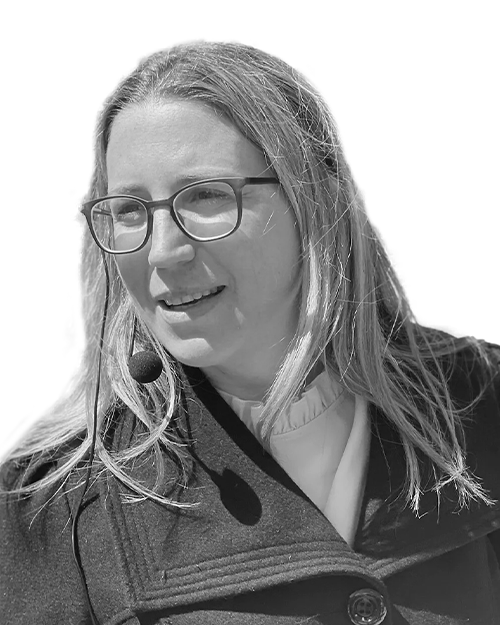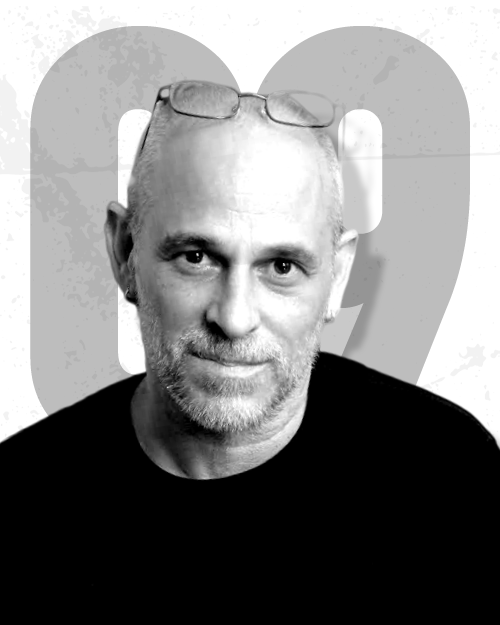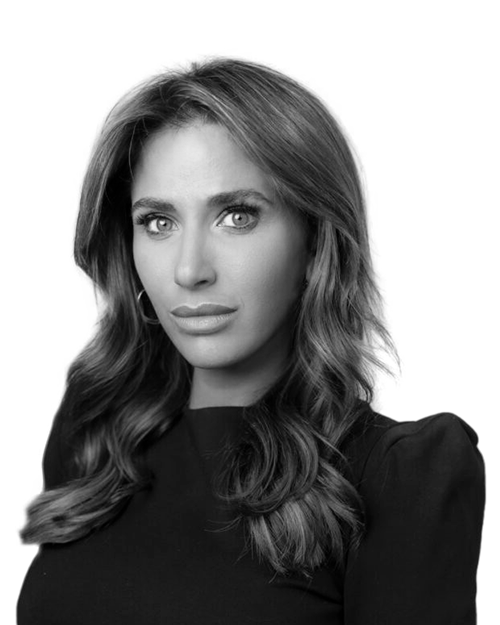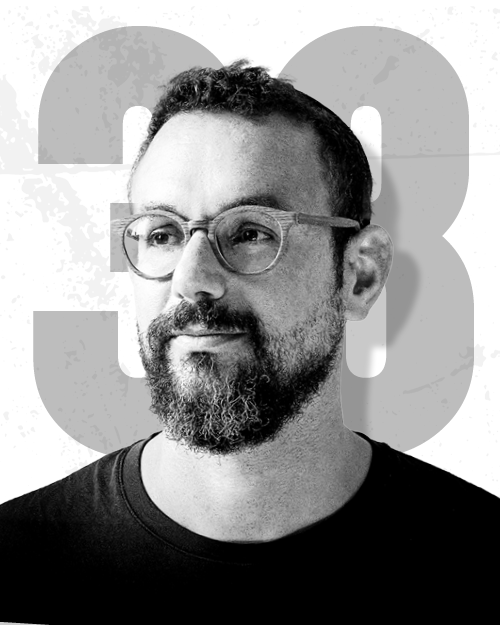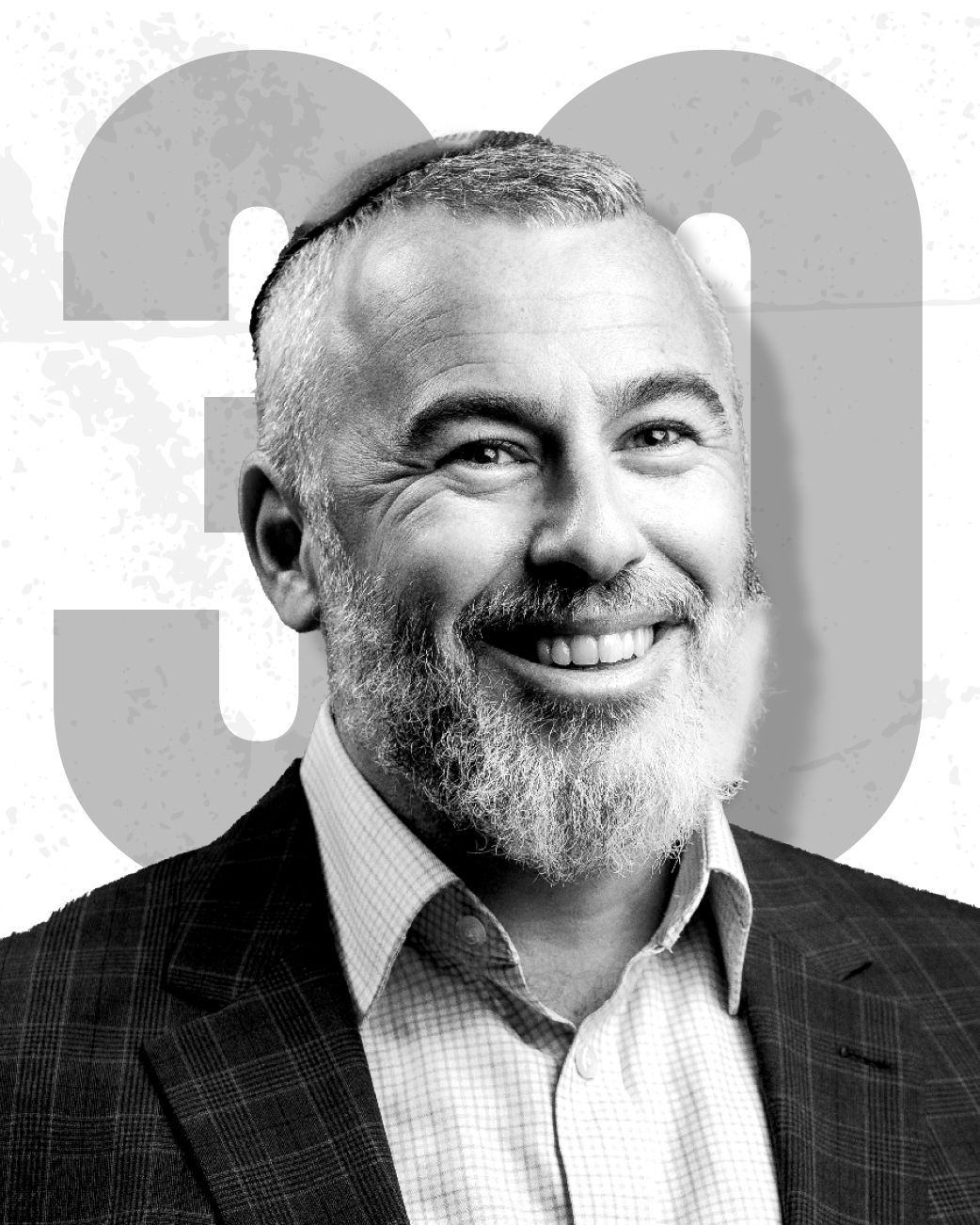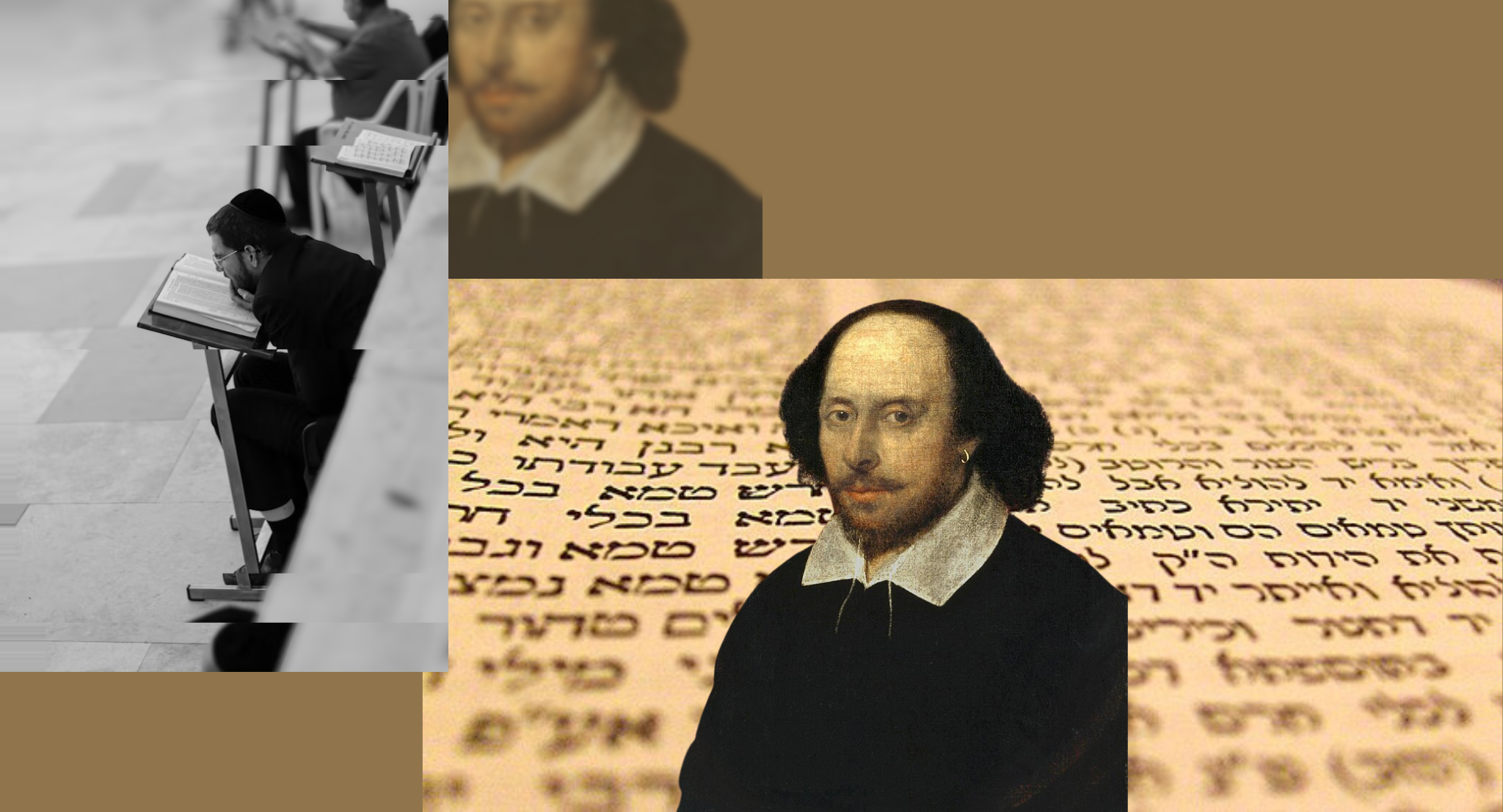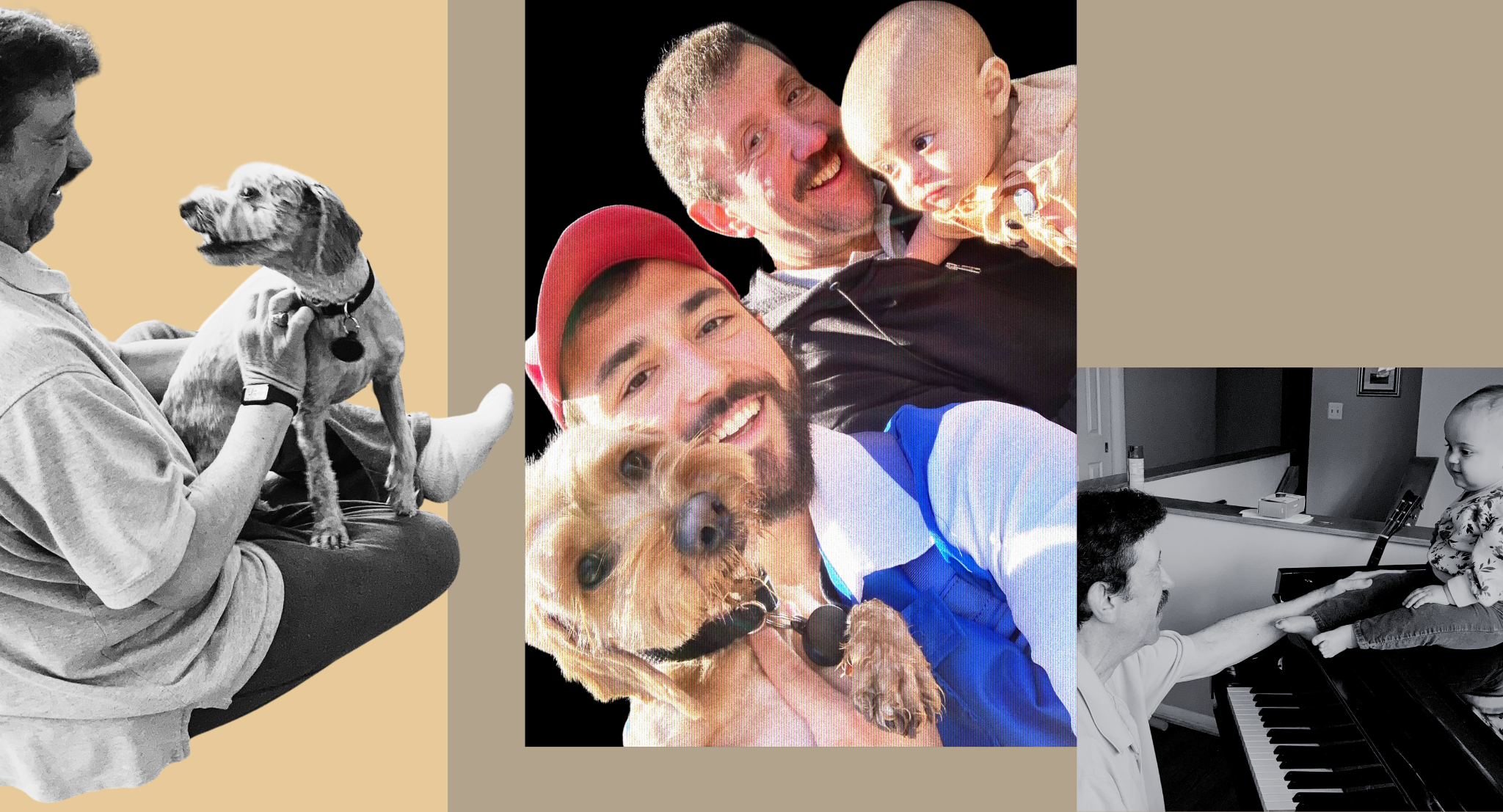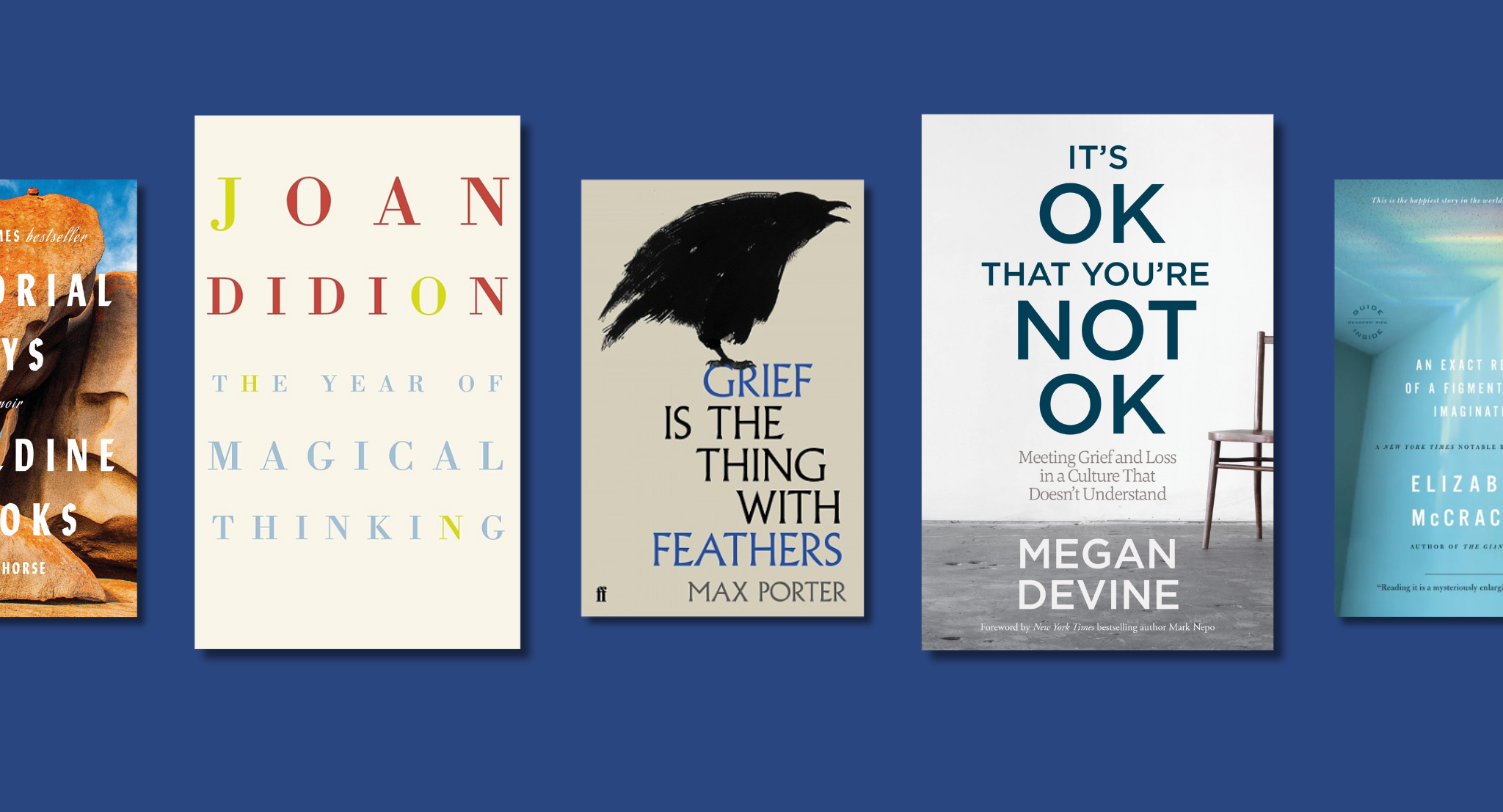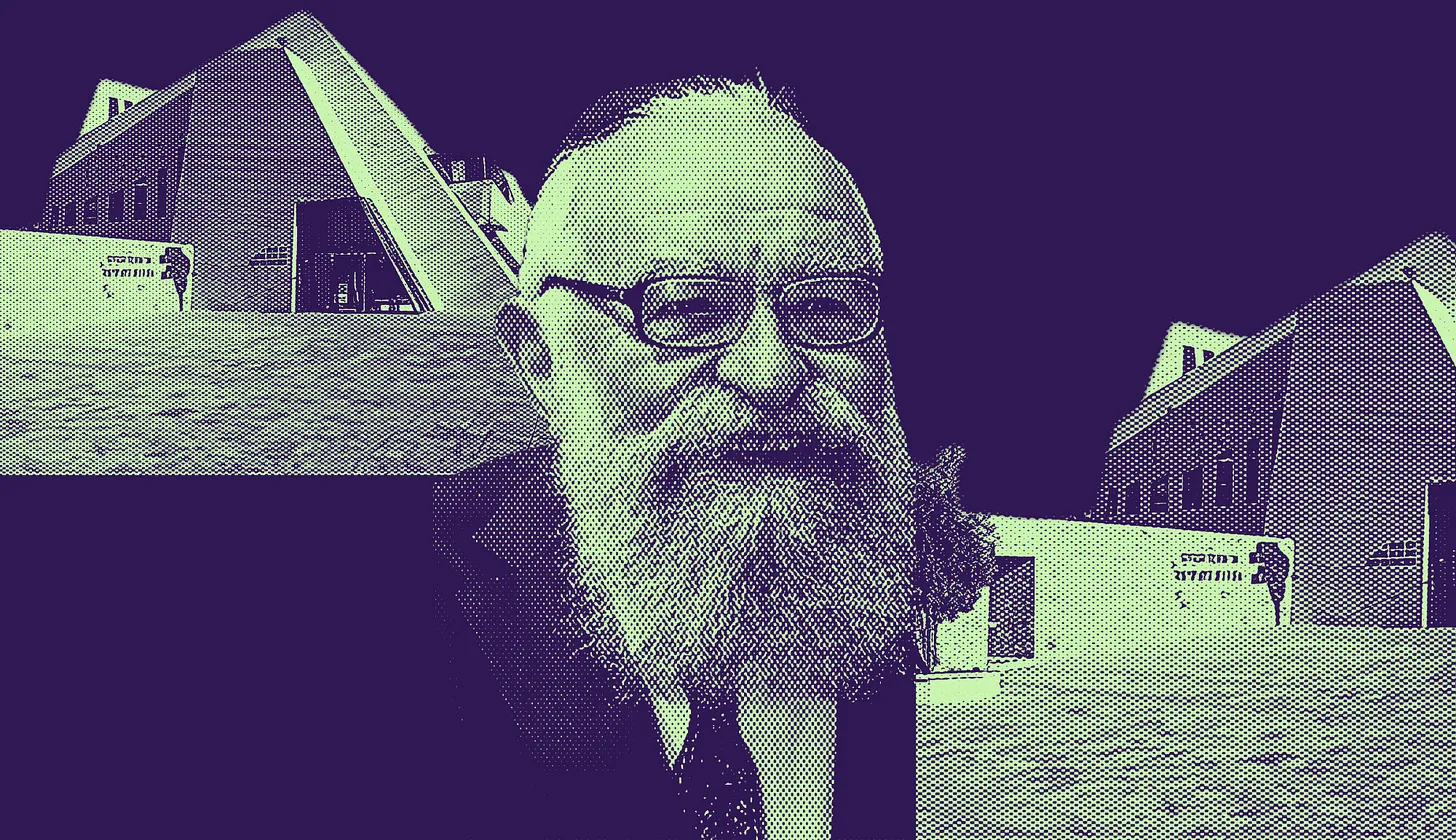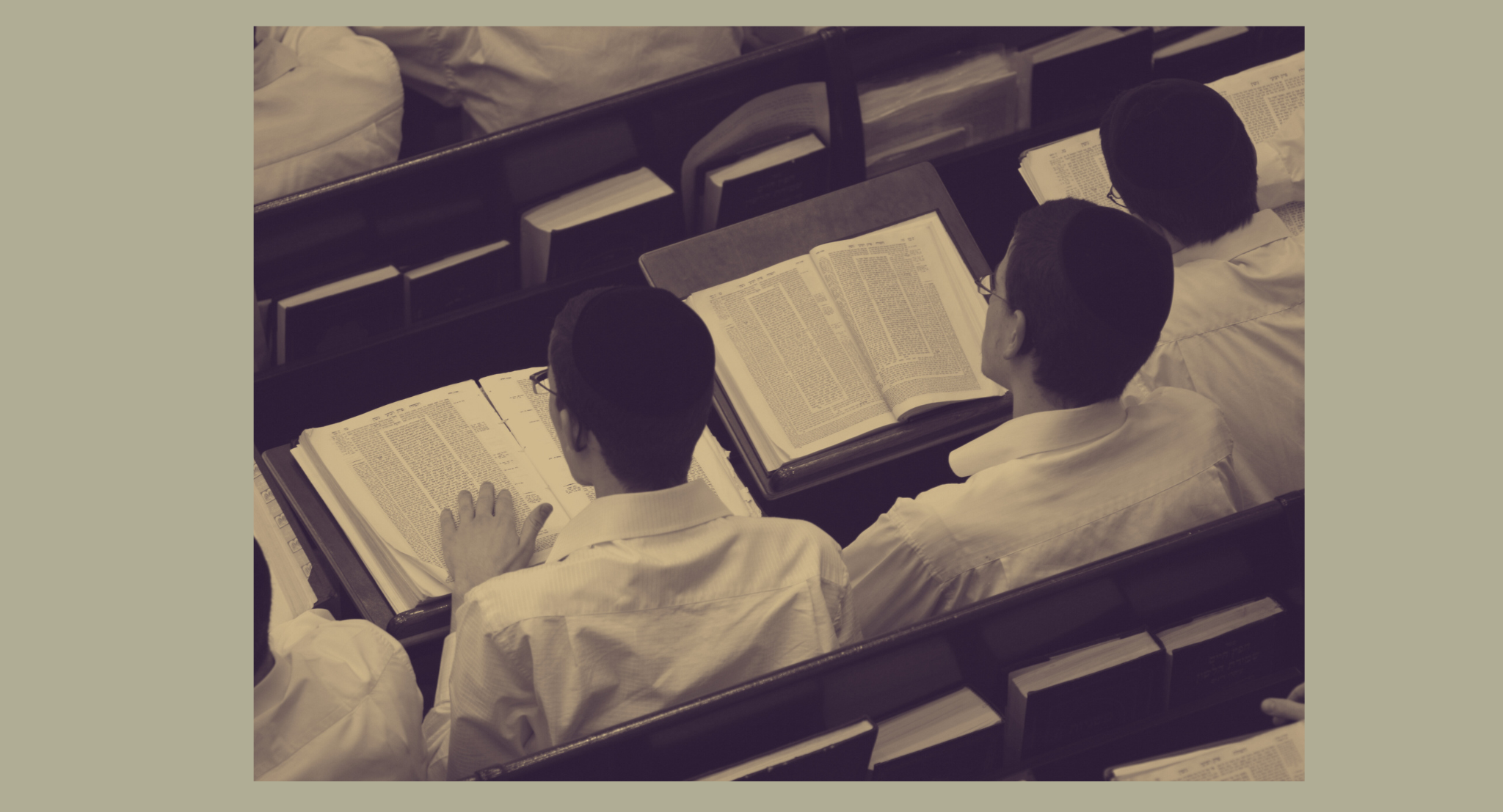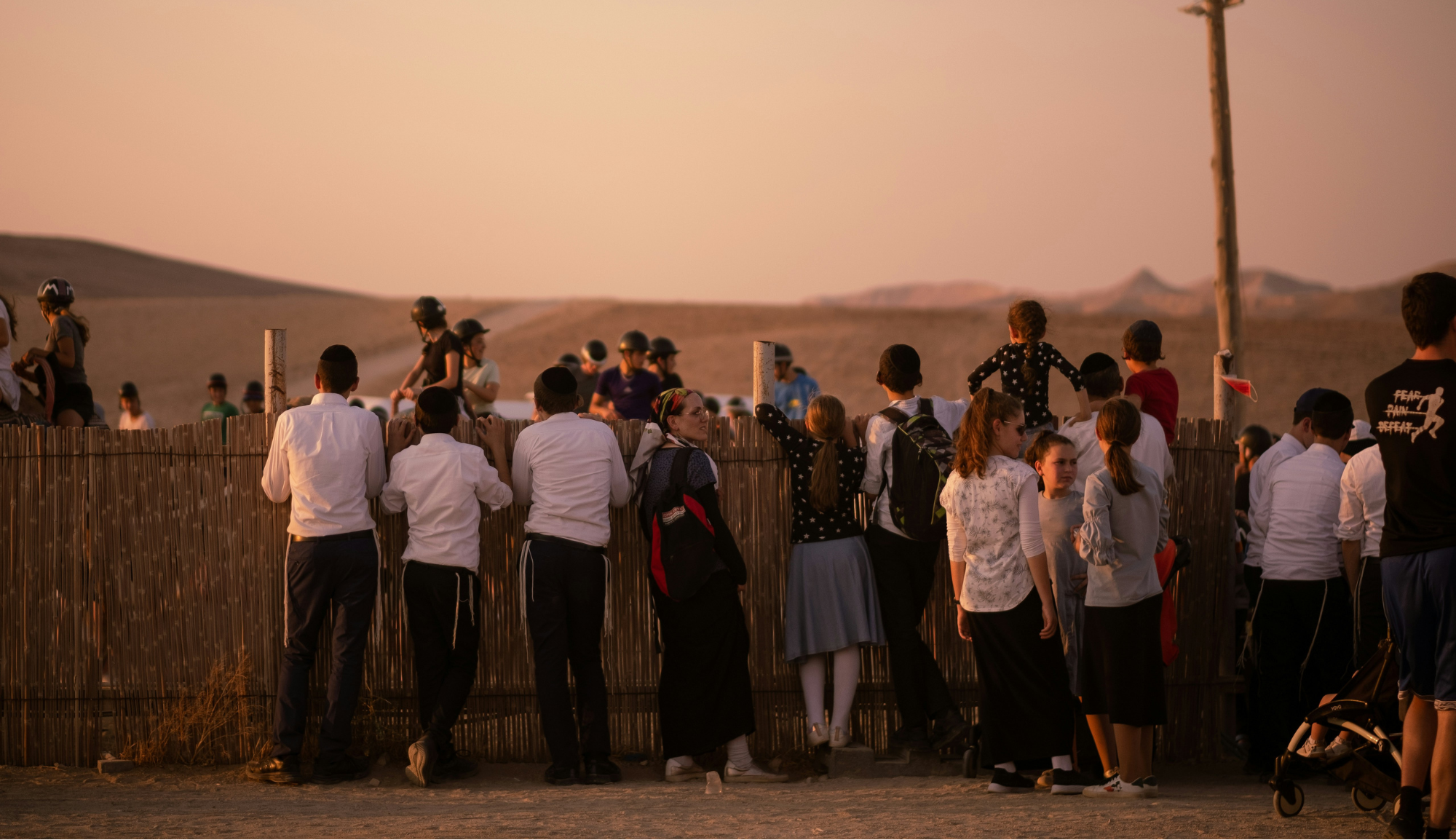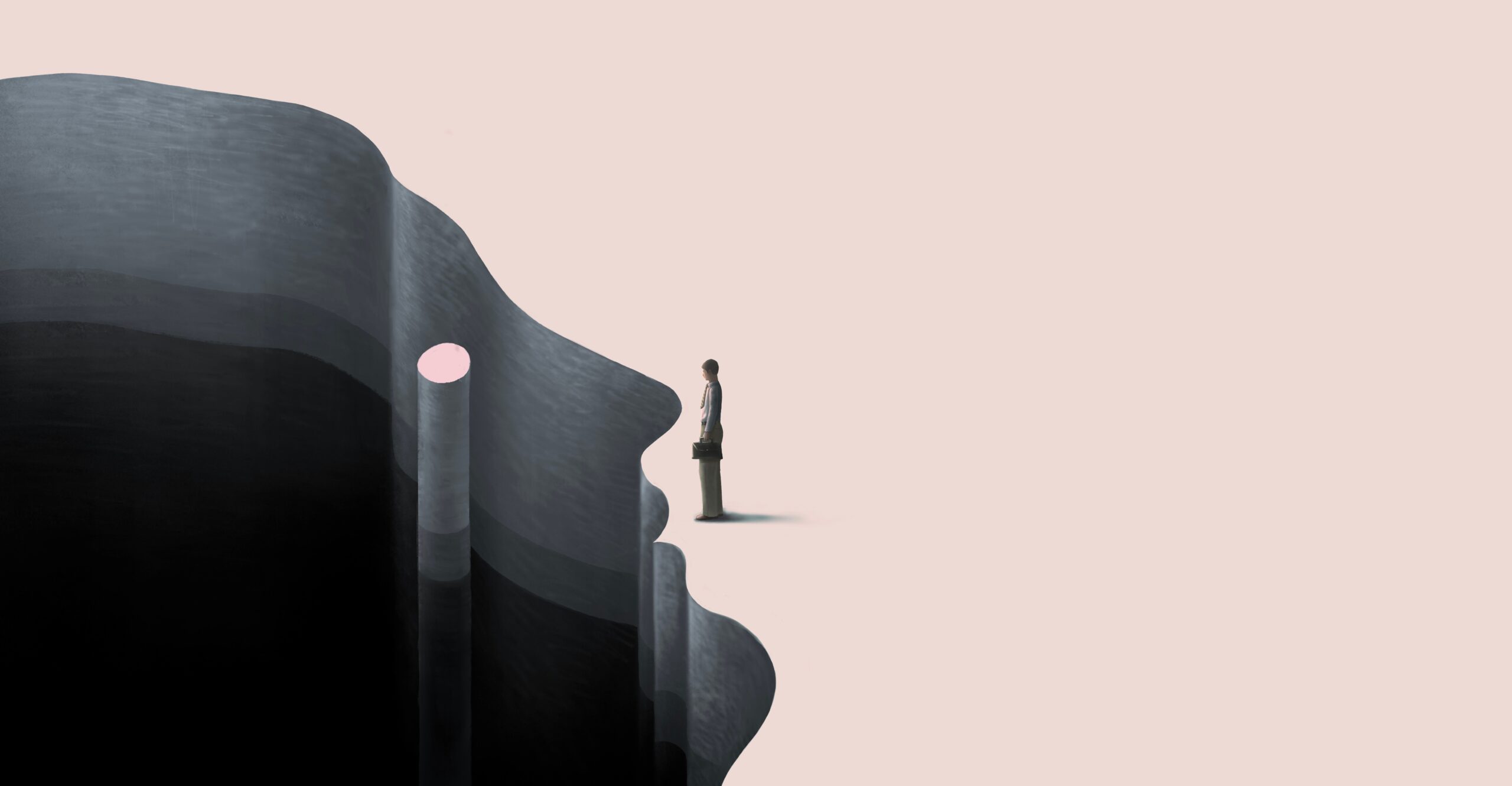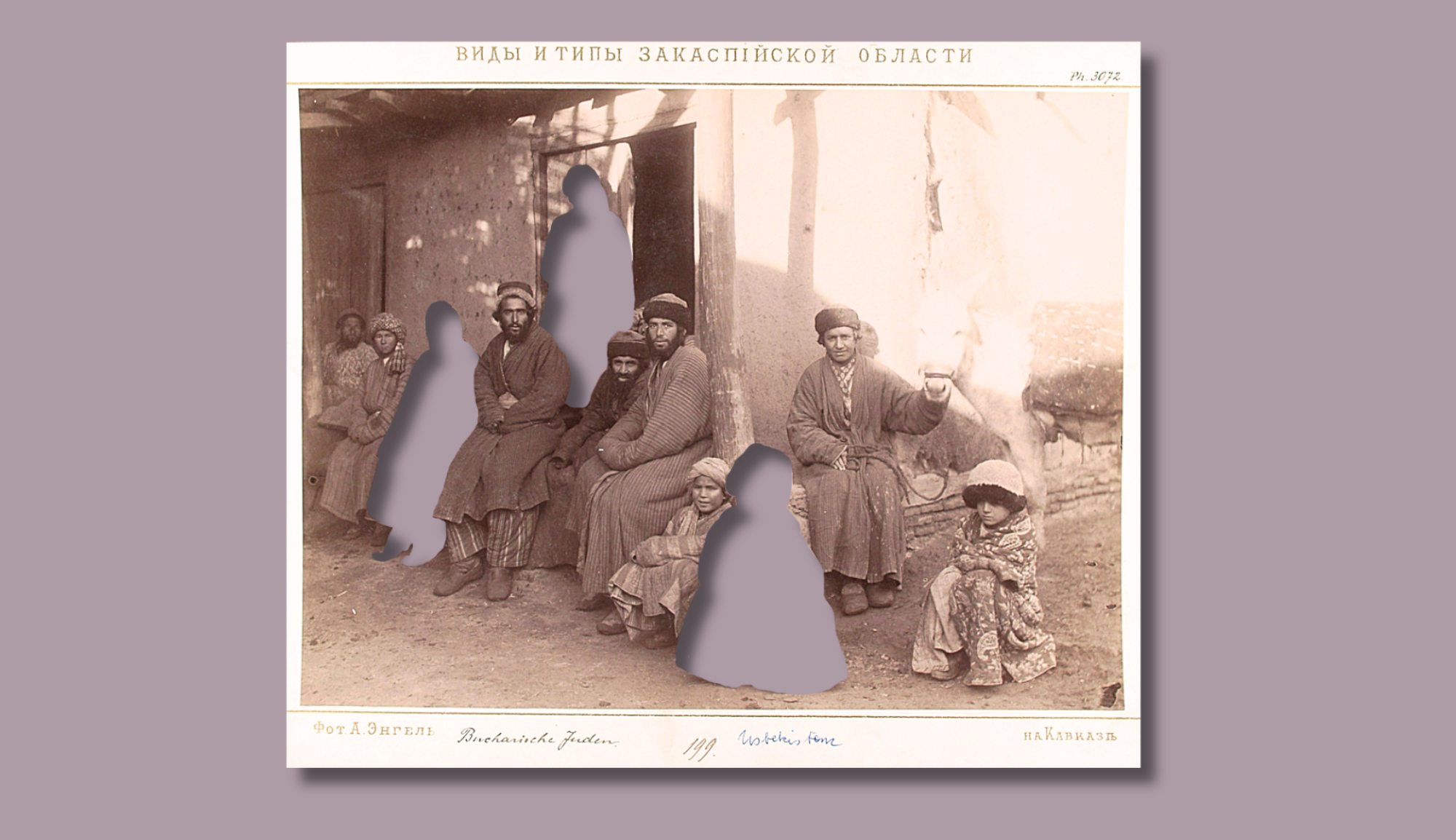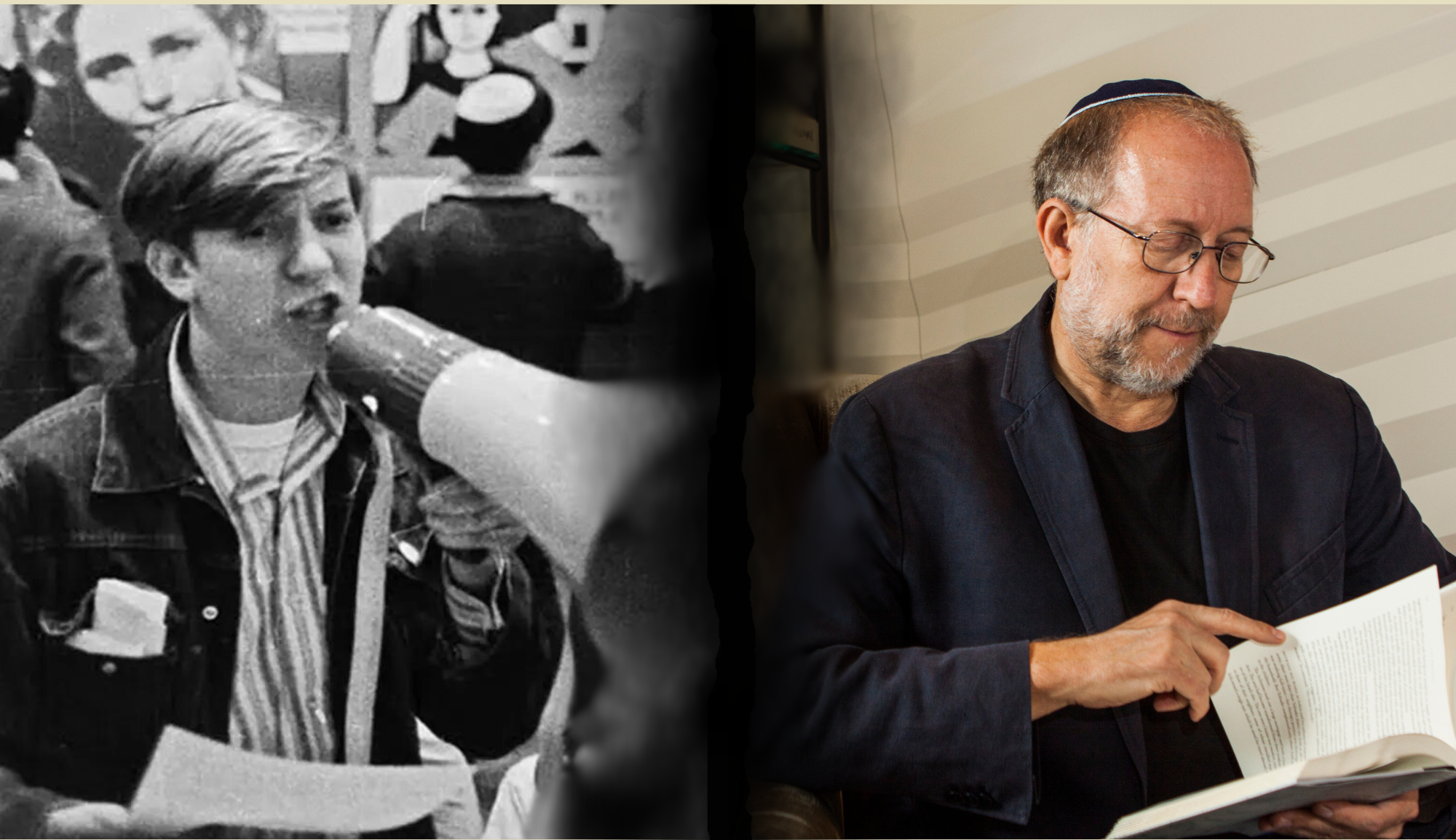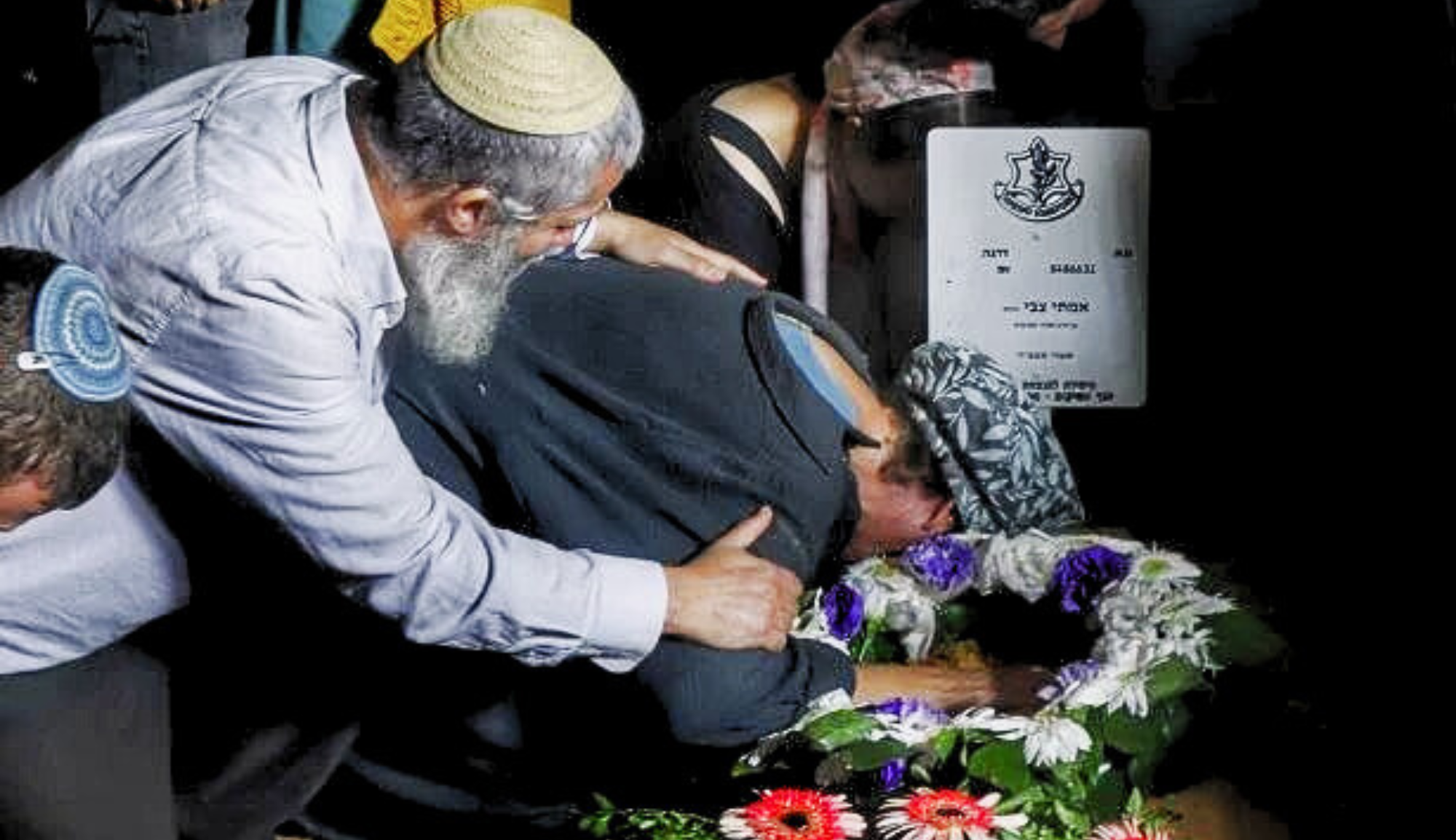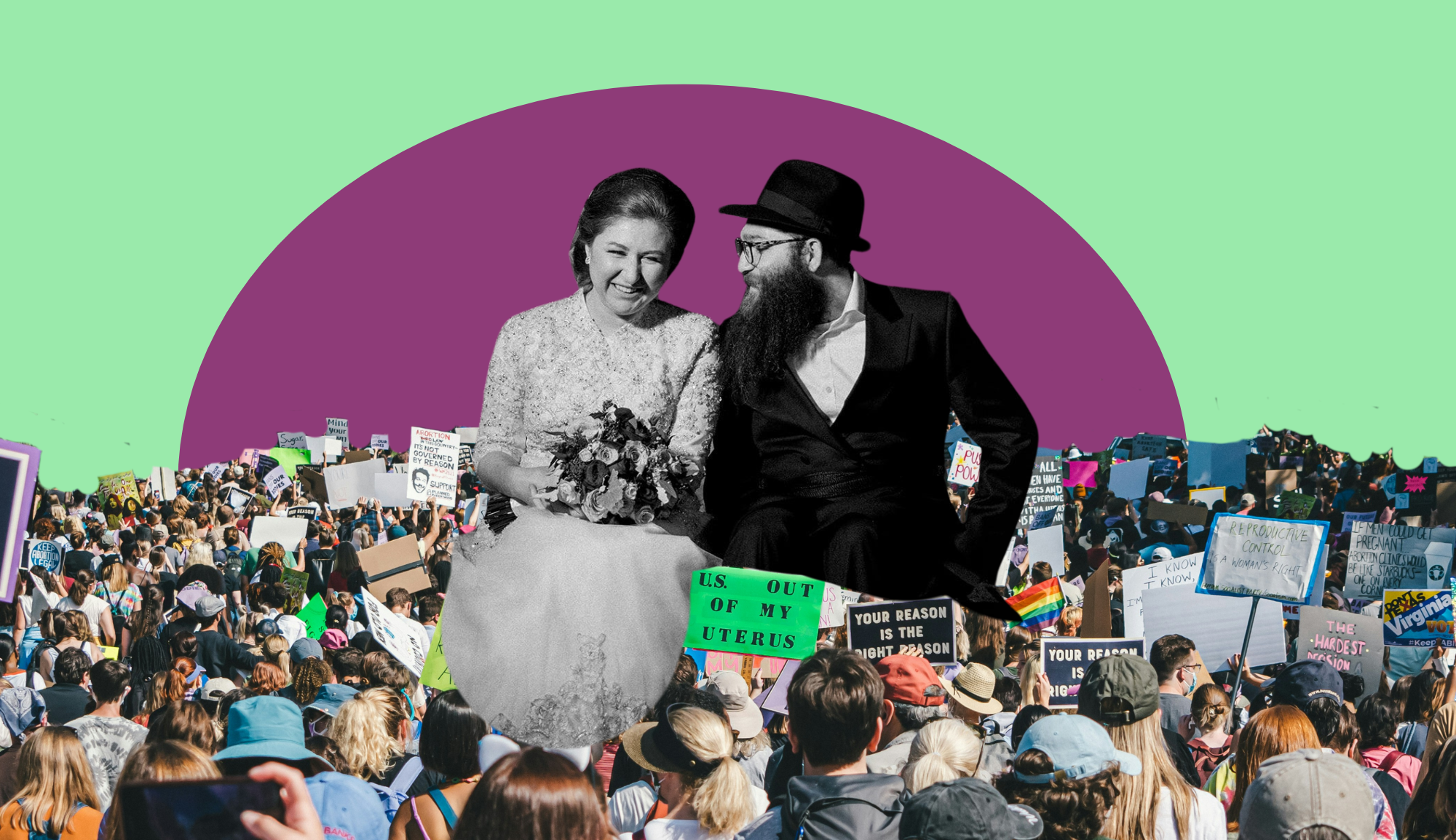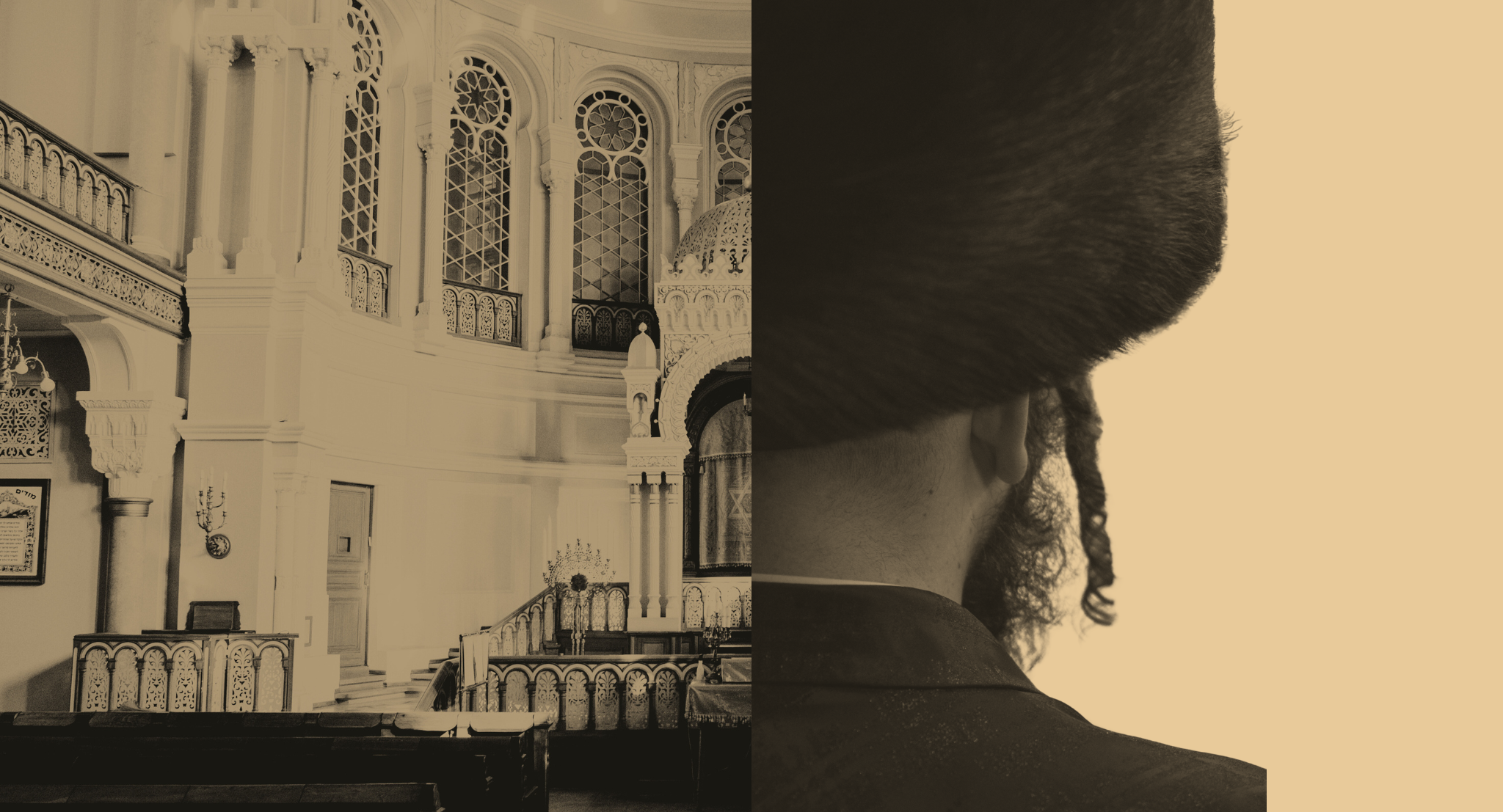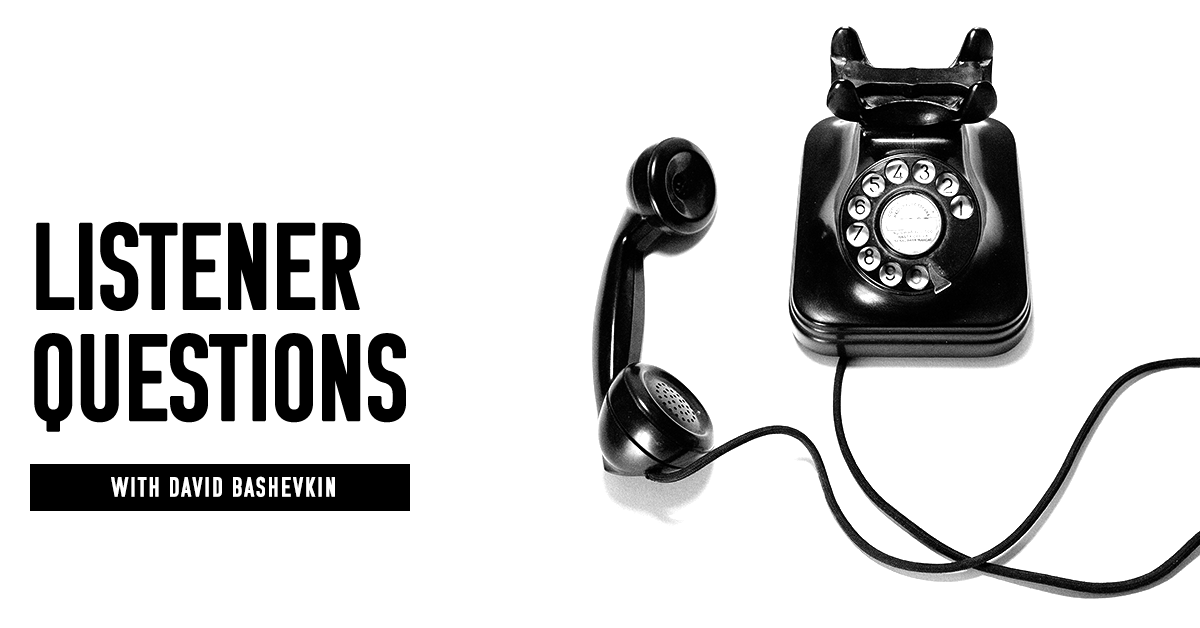
Summary
In this episode of the 18Forty Podcast, we listen to voicemails sent in by you, our listeners, and reflect on the community we have built beyond our conversations.
- What do Pick-Up Sticks have in common with the sorites paradox?
- How has wealth seeped into our subconscious Jewish intergenerational trauma?
- Does an accusation of abuse have the potential to ruin someone’s life even if they’re not convicted?
Tune in to hear a conversation about leaky roofs, trench coats, and bobbing boats.
Voicemails begin at 11:42.
References:
Saturday Night Live – Father-Son Podcasting Microphone
Introduction to Love’s Executioner : & Other Tales of Psychotherapy by Irvin D. Yalom
18Forty – Alex Edelman: Taking Comedy Seriously: Purim
Tinyana, Likutei Moharan by Rebbe Nachman of Breslov
Pachad Yitzchak by Rabbi Yitzchak Hutner
18Forty – Listener Questions and Behind the Scenes with The 18Forty Team
“The View from Pew: Where Do We Go from Here?”
18Forty – Rabbi Aryeh Lebowitz: A Healthy Relationship with Halacha
18Forty – Larry And Tzipora Rothwachs: Here Without You — A Child’s Eating Disorder
18Forty – Rav Aaron Lopiansky: What Tribes Do You Contain Inside?
18Forty – Dr. Tamara Morsel-Eisenberg: Discovering Your Halachic Story
“What We Talk About When We Talk About Anne Frank” by Nathan Englander
Bad Jews by Joshua Harmon
18Forty – Aharon Schrieber: What Happens When You Call the Police?
Transcript
David Bashevkin:
Hello, and welcome to the 18Forty Podcast, where each month we explore a different topic, balancing modern sensibilities with traditional sensitivities to give you new approaches to timeless Jewish ideas.
I’m your host, David Bashevkin and today, we are listening to our voicemails that have been piling up and it’s time to dust off the old answering machine and respond to our listeners’ inquiries.
This podcast is part of a larger exploration of those big, juicy, Jewish ideas. So, be sure to check out 18forty.org where you can also find videos, articles, recommended readings, and weekly emails. So, before we get to the actual voicemails, and we’re going to listen to a whole bunch, I kind of wanted to say a word to our listeners. I’m always talking to our listeners. It’s a weird preface, but sure.
There’s always a little bit of an insecurity that I have in being described as a podcast. It’s not a term that really garners a lot of seriousness or respect and I love the podcast jokes. There’s a phenomenal Saturday Night Live sketch making fun of podcasts in general, which I really found absolutely hilarious and essentially, what it’s making fun of is that sometimes the only way you could get two people in a room to talk to one another is a podcast. So they have a play podcast set for a father and son to actually talk to one another.
SNL Commercial Voice Over:
The father-son relationship, it’s one of the most important bonds in the world. But we all know talking to your son isn’t always easy.
SNL Commercial Father:
What is that?
SNL Commercial Son:
Just one of my inventions.
SNL Commercial Father:
Sure.
SNL Commercial Voice Over:
But now, every father can break through to his son using The Father-Son Podcasting Microphone. With The Father-Son Podcasting Microphone, you and your son can start to have real meaningful conversations.
SNL Commercial Father:
Today, I am joined by my cohost, my son.
SNL Commercial Son:
It’s great to be here, Dad.
SNL Commercial Voice Over:
Dad and son can finally open up to each other using the comforting cadence and structure of a podcast.
SNL Commercial Son:
I’d say my dad’s distant.
SNL Commercial Father:
Well, it’s tough. I mean, there’s no book you can read about being a dad.
SNL Commercial Son:
Actually, there are several.
SNL Commercial Voice Over:
A podcast is a great chance for father and son to get raw, confessional, and unfiltered.
SNL Commercial Son:
I guess looking back on my life so far, I’ve done everything in order to gain my dad’s approval.
SNL Commercial Voice Over:
But sometimes things get too real. Luckily, you can always shift gears with a quick commercial.
SNL Commercial Father:
You know what I do approve of? Squarespace. You want to make a beautiful website in no time? Squarespace has you covered.
SNL Commercial Son:
Choose from hundreds of stunning templates or start from scratch. And our listeners can get started for free with promo code SONLOVEDAD.
SNL Commercial Father:
Wow. You nailed that, kiddo.
SNL Commercial Voice Over:
With the father-podcast, your conversations can be divided into easily digestible segments.
SNL Commercial Father:
Well, it turns out, vasectomies don’t always take. And that wraps up this week’s edition of Family Secrets.
SNL Commercial Voice Over:
Plus, there’s an adjustable mic stand, so that you can raise up the mic as your son becomes a man.
SNL Commercial Father:
114 episodes later, and you’re almost as tall as your old man.
SNL Commercial Son:
Well, I have been taking a little bit of HGH.
SNL Commercial Voice Over:
The Father-Son Podcasting Microphone, it just has to get you through three awkward years before you can both start drinking together.
David Bashevkin:
And maybe I’m just justifying it to myself, as funny as that clip is, and as real as that clip is, it’s a lot of what we do here on 18Forty, but maybe I’m just justifying it to myself. But I really do feel… And when I look in the mirror every day, I’m not like, “Wow, you’re a podcast host.” What I think about is building a very real community and addressing very real struggles and very real issues, questions that people have that may have been falling through the cracks in our own journey through Jewish life, Jewish programming, Jewish institutions. There are still very real areas.
The analogy that my partner in this entire project, Mitch Eichen, used is a leaky roof, that you settle down and start building your Jewish life and you start realizing that you have a leak in your living room. And the water starts dripping slowly and slowly and maybe you start to see the ceiling fracture a little bit from those drips. One model is to take pots and pans and try to make sure that the leak, at least, doesn’t ruin the floor. But I think a lot of what we try to do on 18Forty is actually exit the house, get up on the roof and start to really do the real work to patch those sidings. And it’s a long process.
It’s not something that we’re able to… We are not structured like a question-answer, here’s your question, here’s the answer. Let’s move on. It’s not an FAQ, but it’s really through the process of inquiry that we try to address questions. What I find most heartening and what allows me in whatever way, and what allows us, I think in many ways, to feel that this might be even more than a podcast and perhaps I’m not overstating what we’re doing here, for some who are listening to this as they’re cooking on Shabbos or just stuck in traffic. They’re like, “No, this is just a podcast. I’m stuck in traffic. You just, continue, please entertain me and just like let’s keep it going.” And that’s fine too, of course. We love those listeners as well.
I think for a lot of people, and certainly for myself, what allows me to feel that it’s more than just a podcast, it’s more than something that we listen to when we’re stuck in traffic, but it’s really trying to build a community, go out and fix our respective and collective leaky roofs in our own homes, in our own interiority, in our own personal lives. What allows me to feel that way, what convinces me that that may be the case, is the real people that I’m interacting with off the air. It is the emails, the messages, the voice notes. The people who are showing up, whether in my home, in my office and reaching out to connect, whether it is phone calls that we are having to try to navigate and follow up from some of the issues that we surface, whether it’s people reaching out initially and saying, “Please cover this issue.”
I know our last topic on sexual abuse, which we just finished right now, began with such a phone call. And we get those phone calls, and my only regret… Not my only regret, I am basically a human body. Like you know those images, there’s this show, BoJack Horseman, where there’s an adult, but it’s essentially three children stacked up one on top of the other on each other’s shoulders to make it look like an adult. Like the old show, The Little Rascals, that’s probably a reference. If you don’t get the BoJack Horseman reference, hopefully you get The Little Rascals reference and you had the kids stacked up one another with a trench coat.
So, I’m basically regret piled on regret, wearing a trench coat. That’s basically how I operate and interact with the world, thinking about all the things I could have done differently, should have done differently, messed up. So, it’s not my only regret, but one of my many regrets is that I don’t have more time to connect individually. That I’m not as quick and not as responsive as I could be, as I should be, because this project, 18Forty, is a privilege. It is a privilege that we began two years ago, that when I first started, I saw a thousand doors for failure and maybe a handful of doors that would allow for its success. And the fact that we are even still around having these conversations, to me, is nothing short of a miracle that if I don’t take it as seriously, as responsibly, as the privilege that it is, to enter and interact in people’s lives, then what are we doing here?
That’s the very mission and purpose of everything that we’re doing. So, it really is a privilege to enter, interact, and engage with people’s lives. That’s something that it’s moving for me to even talk about and it’s something that I take quite seriously. It’s a real responsibility, but more than anything else, it’s a privilege. So, thank you all. For those who are listening and for those who it’s just a podcast, relax yourself. I’m stuck in traffic. I’m cooking. I’m doing whatever, stuff around the house, and this is just what happens to be on, we love you too and we thank you. But really, to everyone who is engaging, and it’s more than that, who’s reaching out with an email, who is reaching out with a voice note, who is following up and seeing, “Is there a time that we can get together? Is there a time that we connect?” It means the world to me. It is something that I find so, so deeply moving, and I cannot thank you enough.
And I’m sorry, and I need to say this, and I’m sorry that I’m not faster in my responses, that sometimes I miss an email. I have missed emails and somebody follows up and say, “Hey, can you get back to me? Can you respond?” I’m unable to do it all the time, but I do my very, very best because this is a privilege and pleasure like nothing that I could have imagined and we shouldn’t be here. We shouldn’t be having these conversations. This should have ended after the first month when we first dropped and people were like, “Eh, okay, we’ll see.” We’re still here over two years later, and that is something that I will never, ever, ever take for granted. So, thank you all and let’s jump into some of the voicemails that we have been receiving.
Just once again, the voicemails, the number for our voicemail is 917-720-5629. Once again, that’s 917-720-5629. You can leave a voicemail anonymously. You can leave a voicemail with your name. Please let us know which is which, because we don’t want to ever want to play something where it’s like, “Hey, I did not want that played.” So, just specify whether or not you feel comfortable having it on the air. But I think sharing these voicemails and our responses and our thoughts and reacting to them really creates that feeling that it’s more than just a podcast, it’s a community. It’s something that we’re all doing collectively in our own rowboats, but when we listen to a voicemail, like the quote that I use so often and that moves me every time I think about it, and since I read it from Irvin Yalom, “Even though you’re alone in your boat, it’s always comforting to see the lights of the other boats bobbing nearby.”
That’s a quote from Irvin Yalom in his introduction to Love’s Executioner, one of the most formative introductions I’ve ever read. I specify the introduction because I one time recommended the entire book. And I’ll be honest with you, there’s a lot of weird stuff and some upsetting stuff in the entirety of the book, but the introduction to that book is absolutely essential. And that is something that he mentions there in his introduction, where he talks about the four principles of being successful in therapy, being successful in your own self inquiry and journey. He’s talking about it in the framework of therapy. And one of the things that he mentions there, a quote that I think about all the time, “Even though you’re alone in your boat, it’s always comforting to see the lights of the other boats bobbing nearby.”
So, that’s a little bit of what we’re going to do today, listening to some of these voicemails and seeing the lights of the other boats bobbing nearby. What are the questions, feedback, criticism, inquiries, that people have had over the past few months since we did this last? We try to intersperse these in between, do it with more frequency, but we do listen to every single one. And please, please, please don’t hesitate. Once again, the number is 917-720-5629. Let’s listen to some of our listener feedback and thank you again to our 18Forty community for reaching out, staying in touch, and building these connections.
Listener 1:
Hi, this is actually so strange that I’m actually calling and leaving this message. But I actually just listened to a podcast of yours and it touched me, and I kind of wanted to reach out and see if you have any more information on something that you touched on briefly and if maybe you could direct me in that area.
I’m referring to the podcast you did with Alex Edelman. I actually just listened to it. I’ve been going through some of your podcasts and they’re excellent, I’m really enjoying them. At the very end, you touched on something, when you were talking about the Megillah of Purim and how the tune of Eicha comes in, and you use it as this mashal to these close friends. And one of them is moving on and getting married, and how the other person is feeling.
And you know, I understood how you connected it in that podcast. But what I’m getting at is, is there more information about that actual real topic? About what happens to these, especially in the generation we’re in where there’s so many older singles, and there’s a crisis in the shidduchim, and this obviously is going to happen. There’s going to be a point where these close friends who have been leaning on each other for so many years, have been almost like each other’s person until they’ve found their real person. And then that first one finally gets their moment, their Purim, and has their wedding.
Is there information out there, advice out there for both people, how to go through that process in the best possible way for both? It’s hard for both sides uniquely, I think even more for the one that’s left behind, you know, so to speak. How can they, A, celebrate the other person’s simcha while having that pain of losing their person? And how do they keep their head up and hope that Purim is coming to them?
And also, how can the one who is getting married maybe be more sensitive, even though it’s their time to be happy? How can they tap into the pain that maybe their friend is going through? It’s a very complicated thing to navigate. And I’m wondering, have you heard other speeches about such a topic? Is that a topic that you would ever address on a podcast?
David Bashevkin:
So what this listener is referring to is an analogy, and the Hebrew word for analogy is mashal. That’s what she kept on mentioning, a mashal. There’s an analogy I used at the end of the pre-Purim Alex Edelman podcast, where the part of the Megillah we use the trop, the tune, from the Megillah of Lamentations of Eicha, and we sing it sadly.
What I imagined this as was two friends who were dating together and you know, going on that journey together, and one of them gets married first. The other one is sitting alone at that first friend’s wedding by themselves. An experience that I have had many, many times as that lone person. I remember that, which is why the imagery worked for me, and something that I always mention and think about in the Megillah. And that friend in the middle of the circle brings in that other friend into their simcha and dances with them, and says, “You know, your story too, is a Purim that has not yet unfolded.”
This is what we’re doing in the Megillah, where we’re kind of bringing in Eicha. This story of exile into the Purim story, and dancing together, and saying that Lamentations, the story of the destruction of the Temple, the story of exile, is also a Purim story that has not yet fully unfolded.
It’s an idea that doesn’t appear explicitly in any text, it’s imagery that really I was drawing upon my own experience. If you want to find a text that talks about it in a close way, the notion of bringing other people into the circle who are struggling, this is something that Rebbe Nachman actually talks about in LikuteiMoharan in Tinyana, which is the second section of that work in the 23rd Torah. It’s in Hebrew, but you can find many, many translations. And he says that there, and the notion, just even highlighting the notion, it’s so strange that we use the trop, the tune for Eicha within the Megillah. Something that many people notice and Rav Hutner in his work Pachad Yitzchak on Purim also makes note of this.
And I guess maybe if you multiply that Rav Hutner with the Rebbe Nachman, you get pretty close to the idea that we mentioned, the imagery. But in terms of the idea itself, I haven’t heard a great deal of people speak about it. I am not surprised at all that people struggle with this. The fact that the caller reached out to hear more about it is actually not so surprising because it was a Torah idea that emerged from a very personal experience. I had very, very close friends who we were in the struggle together. We’d come back, talk about dating life and share our frustrations together. And over and over again, those friends got married before me, and I would have to be at their weddings.
I had a roommate. I remember at his wedding, I had to leave in the middle and I just sat alone in my car. I couldn’t be there. It was really, it was hard. It was hard to feel engaged. Other weddings, you would just kind of party really hard and drown out your own sorrows. But learning how to engage in somebody else’s joy while you are going through something, particularly something that relates to the very joy of the celebration you are participating in, is extraordinarily painful and difficult.
Nobody would expect somebody who just got laid off to have a joyous time at celebrating their friend’s kiddush, celebrating their promotion at work and making partner. We sometimes don’t give ourself enough credit for how difficult that could be. In terms of navigating that with a friendship, number one, yes, undoubtedly, one of the topics that sit most high on my agenda to really talk about is, you could call it, shidduchim. I’m probably not going to use that term.
I think it’s romantic relationships. I think it’s finding that process of both finding, preserving, cultivating marriage, dating, romance in your life is something that obviously looms large in my own story. It was a big part of my own doubt that I had in my 20s, of being able to commit to that, and is a topic we absolutely need to address. But in terms of people who are going through it now, and hopefully we’ll address it more expansively later, the only thing that I would say is you have to have realistic expectations on yourself.
I don’t think we could ever legislate to others how perfectly to treat their friends. I think that there are different people who get hurt and feel sensitivities, and feel pain in different ways. And people need to adjust their expectations in multiple ways. Number one, realizing that there are things that are going to hurt us that are not meant maliciously. That’s number one.
Number two, adjust your expectation of who your friends are. This might be a difficult thing to say. Not everyone you went to high school, seminary, yeshiva, wherever it was, not everyone is your best friend. Sometimes it is through the cauldron of this process that you realize that you don’t have 70 friends. You have three friends, you have four friends, who you can be real with, who you can be honest with. Some of those friends might be at different stages in life than you, but a real friendship is something that you can be deeply honest and authentic with.
And imposing that standard of friendship on every acquaintance that you’ve met, or every “friend”, and I’m using air quotes for that, is unrealistic and unfair to yourself. And for those who you know, they were in your orbit, you were friends in 11th grade, you were roommates in yeshiva or seminary, and now it feels different. Maybe it is different, and allowing yourself to acknowledge that. And dare I say, move on in a healthy way, but not holding every single friendship so tightly, is actually, I think can be something healthy.
Finally, I think the most important thing with this is making sure that you and your life are not diminished to this one situation, this one area that is lacking in your life. And it’s that final point of advice that I would give to the friend who has moved on, so to speak. The Purim story that has completely unfolded. That when you talk to people who are yet unfolding, you have to find things to talk about other than how’s dating going? How’s this one area of your life that you are struggling with? A friendship should not be diminished to one area of struggle. Dare I say that with somewhat suspect on the quality of the friendship itself, if the only thing that you’re bonding over is dating.
That’s obviously something that unites you. It could be something that deepens the friendship, but it has to be more than that. And when you reach out to friends, you need to make sure that you are not diminishing them. You have to give them the space to allow them to talk about it. But that’s, of course, their choice.
At the same time, I think a lot of people who have fully unfolded get held to an extraordinarily high standard. We don’t need to feel guilty, God forbid, for being able to… I’m saying this very carefully, because I was once in the situation where I was not yet married, and now I am married. Your marriage is a serious priority in your life, and you’re not always going to be able to be there for your friends in the way that you were there before you were married. That happens to be a very painful reality.
Doing it with graciousness and decency, if it was a real friendship to begin with, I believe it is something that it will endure. They don’t all endure. Maybe that’s too real. They don’t all endure. And I think learning that part of this process is figuring out not who’s your friend, and who’s not. It’s not a binary, you’re not casting people aside. But seeing the depth and the quality of the relationships that survive particular situations, whether it was we were going through the same dating situation, the same professional situation, we were roommates together, we were in the same high school.
There is a filtering out of life that allows you to realize what united you with those original friendships. It was more than just being in the same situation, in the same location. And that is a part of that process. But of course, I’m only going over this fairly quickly. I hope to explore this much more in depth when we deal with this topic in a series on romantic relationships, dating, marriage, and all of those things.
Let’s listen to one other voicemail. Not one other. Let’s listen to the next voicemail that we have.
Daniel Hagler, Listener 2:
Hi, this is Daniel Hagler. Longtime listener, first-time caller. Was recently listening to your recent podcast about your relationship with halacha. Really like the podcast. I like all the work you’re doing, but I do have a criticism about the use of the sorites paradox here. And I think it’s limiting with respect to halacha, because the sorites paradox says that you can’t tell exactly which grain is the critical grain that’s going to distinguish a hump from a not a hump.
Certainly it’s not the first grain. Certainly it’s not the second grain. Still certainly a lump or a hump throughout. And the approach to halacha, I think, misses something because you know, Pirkei Avos goes, perek two, perek bet, talks about how you have to pay attention to a great halacha, as well as a small mitzvah. Because you don’t know which one is the… What the value for anyone is.
I think a better metaphor here would be something like a bundle of sticks. You ever played Pick-Up Sticks where any given stick, you don’t know how they’re structured, which one’s laying on top of the other. And any one stick you remove could potentially disrupt the entire pile. And I think that’s a better metaphor for halacha, though, where it’s certainly not the first stick you take out, like with the sorites paradox.
You take out any one grain of sand, and you can throw it away. You can throw away the first grains of sand and you still have a lump there. Still a lump. If you take away one critical stick in a pile of sticks, that might be the critical one. You may not know it’s the critical one, but you take it out, even the first one you take out, it might be the critical one that ruins the entire pile of what had been built upon it. So like I said, love your work, but I think this metaphor leaves a little something to be desired.
David Bashevkin:
So this was a voicemail from Daniel Hagler. Daniel Hagler, he did me dirty. No, it’s an excellent follow up. For our listeners, I live next-door to the caller. He is a neighbor of mine. He is a long time listener, first-time caller. But I literally speak to him multiple times every single week. So that was very charming that he called up and left a voicemail. He happens to be one of the most profound, religious thinkers that I know. He is an emergency room trauma surgeon. I hope I got that correct. And he’s one of my absolutely closest friends. Some of you may know him on some of the Facebook groups that he does post and interact with. He’s a big poster and moderator in the Frum/OTD Dialogue Group, in the Respectfully Debating Judaism group, in the Inspired Emunah group.
One of, really, the most thoughtful voices I have ever found on contemporary religious life. I hope, honestly, I’ve mentioned him a hundred times to actually get him on the podcast. I guess this is a first pinky toe step. And his basic idea is taking issue with my use of sorites paradox, which I am not sure, I’m never sure that I’m pronouncing correctly, which is a paradox I use to explain halacha that basically says if a heap is reduced by a single grain at a time, the question is at what exact point does it cease to be considered a heap? If you take one grain of sand out of the heap, it’s still a grain of sand. I use this to explain how sometimes in halachic thinking, we look at some of the, not just stringencies, but the kind of extraneous details and what role they play in preserving the overall experience.
Let’s say I’m not so careful about the way I make tea on Shabbos. I’ll still have Shabbos, and you slowly can chip away. And you don’t know when, if ever, the very experience of Shabbos itself, or any religious experience, can ultimately be diminished at its core. I think he is rightful in taking point with this, in kind of pointing out that it’s not a perfect analogy. The Pick-Up Sticks analogy is something that maybe resonates a little bit. You don’t know what each grain of sand is connected to. If you pick up one grain of sand from a lump, you could be absolutely certain that first grain is serving no purpose. As opposed to when it comes to halacha, some of those extraneous details may look like a grain of sand, but little do you know, do serve a much larger purpose in preserving the overall religious experience.
I think what I meant it at is that for many of us who have, whether it was a struggle with halacha, or something that you discarded, and then you said, “Hey, I still have this lump of religious experience here. How come my rebbi told me I can’t do any of this?” I think that is a fallacy. Whether you want to use the analogy of Pick-Up Sticks or a grain of sand, I think it is important not to hold up one individual religious practice, whether it’s a stringency, or a leniency, or something you do and say, “Hey, if I could still feel Shabbos, if I could still pray, if I could still have a religious experience without this, it must be that this is useless,” and throw it to the side. That is not a healthy way of thinking about any experience. Certainly not a religious experience and the way that halacha, as a system, preserves it.
So I accept what he is saying. Whether or not you want to use the analogy of sorites paradox, which uses a heap of sand, or the Pick-Up Sticks. Maybe a little bit of both, where the sands are maybe interconnected, but that was the basic point that I was trying to mention. And I will make sure the next time I see Daniel Hagler, which will be in just a few hours, I will thank him and also tease him for sending in this voice note. Let’s go to our next listener.
Shmuel Lesher, Listener 3:
Hey, David, and the rest of the team in 18Forty. It’s Shmuel Lesher calling. I really appreciated your previous episode, Listener Questions, where you particularly address the issue of the day schools, and playing that message from an educator where there’s not one day that she doesn’t regret going into education. I think, David, you spoke appropriately forcefully that this is an issue that really needs to be addressed. I, myself, am in rabbinics. And my wife went to Jewish education. And I think it’s very important that, as you mentioned, that educators, especially young ones, don’t feel they have any regrets going into this field.
I want to just add to the discussion, a quote from Rabbi Yisroel Kaminetsky, wrote in the previous Jewish Action, Winter 2021. The View from the Pew. I think just this quotation speaks for itself. Rabbi Kaminetsky is the rosh yeshiva and the maenahel of DRS in the Five Towns. And I think that these words written in one of the most prominent Orthodox publications in America, it speaks for itself. So this is Rabbi Kaminetsky’s words at the end of his article.
Quote, “While, as mentioned above, schools are far better supported today than they were 50 years ago, it is still not possible to make a living wage as a rebbi or teacher in 90% of our modern Orthodox high schools. Due to this, as well as the other factors, fewer and fewer of our best and brightest are entering the field of Jewish education. And our yeshiva, referring to DRS, 10 years ago, we would get 70 candidates for one open position. This year, we had four.”
I think that the quote speaks for itself, and it is an important thing to address as Rabbi Wieder and Ari Bergmann pointed out. I think it needs to go far beyond just the confines of one particular school, or one particular age bracket. And I believe it’s an important issue that I imagine will be addressed at the next treatment of the tuition issue and the school issue in general.
David Bashevkin:
Shmuel Lesher is a dear friend. He serves as a rabbi, a young rabbi, in Toronto. A super thoughtful person who I know personally. And I really appreciate this message, because it quotes my rebbe about what it is like being a rebbi, and that is Rabbi Yisroel Kaminetsky, who stands on my Mount Rushmore of who inspired me to enter the line of work that I am in. And it really highlights this notion of, “What have we built educationally?”
I know the products of the yeshiva high school system in America is incredible. It really saved the very trajectory of this country of Yahadus, of Yiddishkeit, in North America. There’s no question about that. But what concerns me is that while we love what it produces, the experience of service within that system, to me at least, feels very broken. And I am worried that we are standing together on the deck of the Titanic, that is our yeshiva day school system. Patting ourselves on the back on how wonderful and how luxurious this boat that is preserving Jewish life in North America is, and we are headed straight into an iceberg. And the canary in the coal mines, sorry to mix metaphors, the canary in the coal mine is that nobody wants to become an educator anymore.
It is really difficult, and what Rabbi Kaminetsky said. He runs DRS. 10 years ago, he had 70 or 90, I forgot what it says on the voice note. Tens, dozens of applications. And the last open position, they had four. And to me, if that is not sending us a message that something is broken, that people do not want to participate in service in this system, that is very frightening. You can analyze that in different ways. You can present different solutions.
And I hope that we’ll be able to do a separate series on the tuition crisis itself. We spoke about this originally as a subset in our discussion on wealth, but I am very worried that for as luxurious and incredible as this edifice, which is our yeshiva day school system in North America that we have built, I have become increasingly concerned that we are on the deck of the Titanic, and we are about to head into an iceberg. And the people who are calling out and saying, “Iceberg ahead,” they are our educators, they are the people who are within this system.
And for whatever reason, no one else wants to join them on top, because these are the ones who see that this is very difficult to join and be a part of it. It’s not easy. If you cannot make a living educating our children, if nobody wants to go into this system, then what did we build in the first place? That is the cruel irony that we have returned to over and over again, and hope to return to again on this podcast. Another voicemail.
Lauren from Queens, Listener 4:
Hi, my name is Lauren. I’m from Queens. First of all, I love your podcast. I’m a really big fan. I just listened to the episode about abuse. And I was just thinking how important this topic is. Especially bringing up how to talk about abuse and even confront it and report it.
Just this week I had an encounter with someone in my daughter’s school where I noticed that past two times, this person has made a lot of, it’s an administrator in the school, has made a lot of off color jokes. One of them was particularly offensive to me based on my family’s history. And I was really struggling if I should say something to the administrator, because while I personally was not offended, I know that this comment, if heard by other students could really turn people off to Judaism and from being frum, and these kinds of attitudes about, let’s say, non-religious Jews, or attitudes about COVID and expressing political opinions. Really, you’re an administrator of a school, you represent Torah values. And saying these jokes really could have a negative impact on people’s relationships to Yiddishkeit.
I was thinking how it is important, but I also have to think about my daughter and would she be retaliated against if I say something, even if it’s done very respectfully and nicely? I don’t want it to negatively impact her. And then I was thinking to myself, “Maybe it’s just this person’s personality. They don’t mean anything negative by it. It’s totally harmless. It’s just a joke. It’s fine.” And then I was thinking, “I’m sure there are other people in the room. I know that there are other people in the room when they hear this, they’re also bothered by it, but no one says anything because it’s just their personality. Everybody writes it off.”
And then I was thinking, “That’s how abuse happens.” There are these very influential people often that have a lot of power, and a lot of control, and a lot of influence, and we’re scared. And we also want to see the best in people. It’s really, really hard to when you know that something’s wrong, and you feel that you’re just a member of that community, a small little member, to be the one that’s brave enough to speak up. And a lot of times, unfortunately, because of this attitude, so many people end up suffering.
And I think it’s just really, really important, this conversation that you’re having about abuse and what happens when you call the police? Just really talking about how important is to speak up. And how to do it sensitively, and also how it impacts a relationship to Yiddishkeit because I think that’s another really important point that so many people are impacted by these stories in ways we don’t understand. I think it’s really important that the community, as a whole, is having these discussions.
David Bashevkin:
This was an important and powerful voicemail to listen to and related in many ways to what we spoke about in abuse because much of our series, which really tried to stay laser focused in an educational way, of how to respond to this. But I think it is a reaction to everything that we were discussing, which is primarily really a product of two points that we had mentioned.
Number one, abuse is a very strong term, but it is also a broad term. And a lot of times we can feel that element of abuse and disappointment, even when it is not criminal, even when it is not sexual. There is a sense of deep religious disappointment that we feel specifically when we are let down by our religious leaders. And being able to address this, that disappointment, and for religious leaders to understand what they are representing to people is beyond important for us to discuss and for both parties to know.
The second point, which I think is even more important and something that I hope came across in the series, is that we need to learn how to cultivate and trust our own intuition. If you hear something, even from someone who we are meant to revere, and reverence is an important quality in the Jewish community and frankly, in any community. But even if you hear something from somebody who you have been taught to revere, that offends your deep intuitions and sensibilities of what is the proper thing, learn to cultivate and trust a healthy intuition and learn to speak up when it is offended. Don’t dismiss it, don’t bury it. Notice it, acknowledge it, and make sure you have the correct response to it.
It is our first line of defense in how we prevent unhealthy relationships from metastasizing in our communities. It is our first line of defense from how we prevent unhealthy personalities from growing within our communities. And we should not be afraid to trust our intuition, even when it stands in the face of a very holy and healthy reverence that we may be cultivating for religious leadership because of their responsibility. But don’t ever allow that to undermine or erode your basic intuition of what is sensible, what is decent, and what is right.
We’re going to go now to the next voicemail.
Reuven Boshnack, Listener 5:
Hey, 18Forty. It’s Reuven Boshnack. Just wanted to tell you a great 18Forty experience we had. Last night, we were listening to Rabbi Lebowitz in the car here, your Rabbi Lebowitz edition of 18Forty. And myself, my wife, and our 13 year old, and our 18 year old. We had a whole discussion, stopping the podcast a couple times in the middle, as we discussed the point that was brought up. So yashar koach, you inspired a lot of discussion and we had a great 18Forty experience on the way out to visit my parents, thank you.
Also, Rav Rimon’s sefarim are available now in English. My favorite currently is the Rav Rimon bencher, which is what a goody. I was able to find it in a used sefarim group on Facebook with insights about the songs and all types of halachos about benching and kiddush. It’s really, really fantastic stuff. Then I’m sure they’re coming out with more. Hope all is well, 18Forty crew. Shkoyach again.
David Bashevkin:
Reuven Boshnack, wow. That was really nice to hear. Somebody who I know personally, very kind of him to leave a voice note. And there is no greater joy than to provoke conversation with real people, whether it’s in the car, in your home, wherever it is, there is no greater joy than that. Our work is not done when you finish at the end. And I try to give you a little bit of Jewish guilt, beg you for a little bit of money, and remind you to stay curious. That is not the end of our work. That is really the beginning. And it is afterwards in the conversations that ensue within our community that mean the most to me. So thank you so much, Reuven, for reaching out.
Our next voicemail.
Simcha Herman, Listener 6:
Hi, how are you amazing team at 18Forty? It’s Simcha Herman. I might sound a little verklempt, I think is the word from Saturday Night Live. Wow. That was mind blowing and incredible, and a lot of adjectives to describe the episode with Rabbi Rothwachs and his daughter. And it’s also just crazy in my own life. I just had a few patients with chronic pain, but with eating disorders and the mental health aspect seems as often as the more primal ideology of the pain, of the physical pain.
Again, I’m just going to like give the pitch that you had some very incredible interviews with very, I guess, just more extreme examples within the Jewish community. I know that they’re actually also much more prevalent than we would like to admit, but I think going to some of the basics of mental health with depression, anxiety, there’s plenty to go with more extreme examples like schizophrenia, bipolar, more psychotic disorders. But within the regular mental health, it’s what most of our community is struggling with.
And you did a great job with materialism, but that so much factors into the mental health space and what it is we are trying to do in this world, what our focus is, what we pay attention to, but really to have on some people who have gone through very significant, more of the bread and butter mental health, I really implore you. I think it’s so important. I just- my own community, as I do more within the mental health space in my practice, I just have more and more people coming over to me. It’s so overwhelming, and like what each family is going through, what each individual is going through. There’s so much mental health that needs to come out of the closet a little bit more, and we’re so much better than we were in the past, but we can be even so much better.
David Bashevkin:
A really beautiful voice note. And thank you, Simcha Herman for reaching out with that. Undoubtedly again, there’s so many topics that I hope to get to, but over and over again, we have heard mental health. It is something I desperately want to share and talk about. It obviously is an issue that is quite personal to me. And it is something that I hope that we get to.
And even though we haven’t dealt with it head on, the feedback that we’ve gotten from some of the different episodes that have touched upon people struggling with mental health has been extraordinarily heartening, and it’s really a privilege to share and interact around ideas of such importance within our community. I cannot agree more with what the caller, Rav Simcha Herman, who I believe is also a therapist, as he mentioned on the call, the importance of talking about these foundational issues of mental health, particularly within our religious community.
We’re going to go now to the next voicemail.
Listener 7:
You will never know how many people you have uplifted and inspired with your courage, and with sharing your story. And I can’t thank you enough. I’m personally indebted to you, but your mother told me that she was just flooded and continues to be inundated with phone calls, with texts, with messages since that episode aired. And I feel like I almost need to ask your whole family for mechila, to bombard them a week before Pesach, but you guys really, you’re amazing. You’re amazing. Tzipora, you are amazing. And I can’t thank you enough.
David Bashevkin:
We heard so much feedback from this episode with Rabbi Rothwachs and his daughter, Tzipora Rothwachs. Really heroes in all of this. I didn’t share this initially, but when we first did the recording, it wasn’t an easy recording and it was something, you know it was a very personal story, but one that they both knew would serve a real impact in our community to share. But to talk about when we think about family specifically before Pesach, which is why we do these series always before Pesach. And it was after the interview, and it’s a testament to who they are.
They looked at me and said, “Look, you don’t have to use this interview if you don’t think it came out right, or you don’t think it’s beneficial.” And I have always found that the greats who we’ve interviewed have all said the same thing to me. They look at me, I remember this is what Rav Aaron Lopiansky said the same thing. He was an early interview we had when we spoke about Jewish peoplehood. I remember he began the interview saying, “Look, you don’t have to use any of this.” And there’s a certain humbleness that very often translates, particularly with the Rothwachs’ interview, into a certain resonance that really can’t be captured in any other way. They’re just incredibly special people and I echo everything that this caller has said.
Let’s go to our next listener.
Mel Barenholtz, Listener 8:
Hello, Rav David, this is Mel Barenholtz. I am, once again, calling from Blue Mountain Ski Slope. I was skiing for the last three hours. And I’m mentioning that because it’s relevant, because I ski alone. While I ski, I listen to podcasts, and that is one time when it is a big advantage to me that your podcasts are as long as they are, because I can just get one started and I don’t have to worry about switching over to another podcast when it ends. So I listened to two entire podcasts while I was skiing.
The one with Rabbi Aryeh Lebowitz, who is fantastic. I will mention that his father-in-law, Billy Gewirtz, lives two homes away from me. And I have a lot to say about Rabbi Lebowitz, but I will not go into it now. I listen to his Daf Yomi every day. I listen to his 10 Minute Halacha podcast. He’s amazing.
The second one I listened to is Tamara, whose name I don’t remember the name. I don’t remember. Tamara Morsel something? She is amazing. She is so impressive, so brilliant, and so thoughtful. She expresses things in such a beautiful way. I was a little disturbed by your question that you would think that knowing about the development of halacha would affect halachic practice. That might be true if you were talking about the second temple period, or early Christian period, and the medieval period. Obviously things develop, and it’s not at all… Doesn’t remove or impinge on the majesty of halacha at all. So she didn’t accept your premise, and I salute her for that.
I want to make one linguistic comment. Those are things I like to do. I want to teach you something that I taught to Benny Lau. He was one of the two guides on a trip I took to the Carpathians several years ago. He would often talk, he was more of a talker, talking sessions, than guiding. We had another guy who was the main guide, but I taught him that the singular of responsa is responsum. And you kept referring to a singular responsum as a responsa.
Tamara herself said responsum, but I doubt that you picked up on it. So I taught that to Benny Lau. He asked me if I was sure and I said, I was, and he in the middle of the trip, he switched over to saying responsum. And one of the things I mentioned to him, and this is relevant, you made a similar mistake when you were talking to Rabbi Lebowitz. You said, “What are the different curriculums for rabbis?” And the plural of curriculums is curricula. Curricula, curriculum. Responsa, responsum.
David Bashevkin:
There is no one I love hearing from more than Mel Barenholtz. His son lives in my community and he very often comes to my classes. And our running joke is his very nitpicky corrections in everything that I do. He does it with great charm. I hope he is in on the joke because I love teasing him for it. I know any time that I mispronounce, or incorrectly pronounce, or I’m in doubt about how I am going to pronounce a word, I know Mel Barenholtz will rise to the occasion and either point out the mistake or clear the path. And he did so in this voicemail, with the difference between responsa and responsum, the singular and plural. And curricula as the proper plural for curriculum, and is not curriculums. I do appreciate it.
He definitely doesn’t miss a beat. Though he did miss the name of the interviewee that we had, who was absolutely phenomenal in the halacha series aside, obviously, from Rabbi Lebowitz, who was unbelievable. And I’ll just mention, I don’t think I mentioned this before. I want to say something about why Rabbi Lebowitz is unbelievable.
This was the second time that I interviewed Rabbi Lebowitz for 18Forty. I had interviewed him once before. We both had mixed feelings about how the interview came out. This was many, many months ago, and I didn’t end up going forward with a series on halacha because I wanted to first secure Dr. Haym Soloveitchik and I didn’t do anything with it. I took an hour of his time with an interview that just now sits in my recorder somewhere. And when I reached out a second time, he was so incredibly gracious. That thoughtfulness after essentially wasting his time is not something that I take for granted as a testament to his character.
But the other person who we had on that series, who we heard a tremendous amount of feedback from, because she is not yet world famous, though I am absolutely certain she very shortly will be. That is Tamara Morsel-Eisenberg, who is an emerging star in the academic world, in the study of halacha. I appreciate Mel’s point that the history of halacha is not going to make anybody question the depth and beauty of halacha. That question was a little bit of a strawman where I wanted her to weigh in on how beautiful it can be.
Though he himself included a caveat, one that I hoped to address on this series that we actually recently received an absolutely beautiful email about, which is the early development of halacha, that early Judaism, ancient Judaism, that second temple period of Judaism. Different people call that period different names. That is a major, major area. One that is, I think, far more difficult to navigate than the medieval period, but one that I absolutely feel that we should navigate because it bothers many people on how Judaism, as we know it came to be. It is something that I hope to get to very shortly. So thank you again, Mel, for reaching out. Our next voicemail.
Listener 9:
Hi, I’m a huge fan of the podcast. Thank you for all the work you do. It’s really changed my life and my connection to Judaism. So I am a man who grew up Modern Orthodox. I went to a pluralistic state school though, and I am going to get married in May. My fiance grew up in a Conservative movement. We’re getting married in a halachic Orthodox way, ketubah, eidim, etc. and plan to live a life where we’re members of an Orthodox synagogue and things like that.
I did want to ask though, because it’s been, even though we have very similar values, her family, though they’re Conservative, keep a kosher home, keep separate kitchens even, there’s always been a source of tension because of these two different movements, even though I feel we’re so closely aligned. I think a good episode would be talking about the relationship between the Orthodox community and the Conservative community that developed in America.
Rav Soloveitchik had you know a lot of [inaudible] to try to create some common ground in the latter part of the 20th century, those talks broke down. Now Rav Riskin is I think, trying to reengage in those communities. So I think it’d be really interesting to, instead of keeping ourselves in the Orthodox bubble, see how our community has interacted and what our thoughts are in interacting with the Conservative movement.
David Bashevkin:
I absolutely love this voicemail because it talks about two topics that I find absolutely fascinating. One is, it’s not quite intergenerational divergence, which is difference between parents and children, but intragenerational divergence we’re within the same generation and the same relationship and the same family, whether it’s siblings or spouses. There are very real lingering differences in maybe your religious upbringing and religious practice. And I hope to talk about that.
The second topic that I do talk about in my Jewish public policy course a great deal, but have not yet addressed on 18Forty, I’m waiting for two things, which I’ll tell you in a moment. That is the topic of denominations, our relationship with other denominations, the history of how these denominational structures have evolved. I’m waiting for really two things on this. One is, I think I need a little bit more capital with our listeners and with Jewish institutions that I don’t get my head chopped off. That’s happened before on 18Forty.
I don’t think my views on this are absolutely radical, but they are different than a lot of the mainstream. I have relationships with people from across denominational spectrums. It’s a point of pride to me that we are able to engage on 18Forty with people from different denominational backgrounds, people who identify with different denominations. I think that’s a good thing. But I do think that in America now we have entered a sort of Orthodox bubble of sorts within the Orthodox community where our engagement and even basic understanding of how we got to this point and the differences, has almost been entirely lost.
In some ways that is a measure of strength of how the Orthodox community has resuscitated itself and really built a great deal of cultural and educational capital within our community. There were many, many decades in early American Jewish history where we were either on the verge of disappearance or playing defense against the other denominations that felt much more powerful. But I think the ties have very much changed in the level of engagement and depth of identification within the Orthodox community vis-a-vis other denominations. I think that changed merits revisiting how we relate to one another, how this came to be and how we continue to identify with each other.
I hope one day I have the courage to do this. It is on my agenda. I wouldn’t say it’s number one on my agenda because I’m a little bit of a wimp, quite honestly. And I want to say something real and authentic and substantive about it that will not get me absolutely destroyed. But it is something that is very, very much on my agenda. I do think it’s an important topic, a very, more important than I think anybody in any individual denomination gives credit for.
It is an important topic to revisit perhaps in the lens of Jewish peoplehood. And we do it in some ways within the intergenerational divergence, whether it was with the Yoffie family or the Frisch family, people from different denominations discussing that underlying familial connection that we still have. What I’m describing is a much deeper dive and how did this come to be and where do we go forward from here? And it is an important topic.
I’m so appreciative for this caller for reaching out and for surfacing that, and either a belated or still early mazal tov on your marriage. You’d be surprised how many people reach out who are contending with this issue who are beginning relationships, where religiously the identity is not exactly on the same step. The upbringing was a little bit different. I think that there’s something very beautiful in venturing and building a relationship, even through that difference. So really a belated or early mazal tov. I don’t know the caller personally, but this journey should be with a great deal of joy and meaning and to build a bayis ne’eman b’Yisrael, a faithful and holy home within the Jewish people. Our next caller.
Pesha Kletenik, Listener 10:
Hi Rabbi Bashevkin. My name is Pesha Kletenik. I live in West Hempstead. I’m a huge fan of your podcast. I enjoyed hearing you speak at the Young Israel of West Hempstead about a month ago. I’m calling regarding the most recent conversation about wealth in the Jewish community. And I enjoyed as always every single episode. My favorite one was the one, the mensch of whatever, the mensch, the one about the factory.
I guess the one piece that I thought maybe would come up in the conversation and didn’t, I don’t know if you thought about it. Maybe it’s even a bad idea, is that in the backdrop of Jewish history, it has been wealth that has been able to save many people. And you know, without risking everything becoming about the Holocaust. It’s hard not to think about how people who had money were able to escape, were able to bribe people, were able to do things to save their lives.
And I think that when the Jewish community left Eastern Europe, whoever did survive, this idea of how am I going to be safe in the future? I think, not to be morbid, is very ingrained in the Jewish community, in each of our psyche that we need to have enough money. You know like, again, not everything to be about the Holocaust, but it’s almost become a Jewish refrain. When I bought our most recent house, I was like, “Oh, okay, well, that’s a place we could hide if we ever have to.” I know there’s a dark humor there, but I do think there’s a lot to be said that wealth is what saved Jews not just in the Holocaust, other times also, but most recently during the Holocaust.
Thank you again for all of your work. I basically listen to your podcast the minute the new episode come out. I listen to it immediately. So thank you and have a good day.
David Bashevkin:
Thank you so much. It was a joy visiting West Hempstead. Really great energy in this voicemail for a topic that is decidedly more somber. I like good energy, even when we are discussing issues as serious as the Holocaust and its enduring impact. It’s a fascinating idea. One that I would probably want to unpack a little bit more. There’s no question that there is an enduring impact in this psyche, our collective psyche of the Holocaust.
I never thought about the connection to that and our feeling of security with material wellbeing. Perhaps there is a connection. I honestly do not know. I would open it up to our listeners, if anyone has written about this or thinks about it, or has thoughts on it. Is a fascinating connection. There is no doubt in my mind that much of American Judaism, our collective psyche was shaped in the shadow of the Holocaust. That definitely is something residual, and what impact that may or may not have on our relationship with wealth and materialism is definitely something really fascinating. When she said bought a house and I immediately looked, we could hide over there.
That is definitely something very real and something that was surfaced in the famous New Yorker essay by Nathan Englander, called, What We Talk About When We Talk About Anne Frank, which is also the name of his collected essays, but it was originally published as a standalone essay in the New Yorker. It is a fictional story of a religious and non-religious couple where the wives were old college buddies, I believe. And they sit around in their living room, if I remember the plot details correctly, smoking pot. I’ll be honest, I don’t read a lot of fiction. I love this story. It was absolutely fascinating.
That is not, to be clear, endorsement on sitting around in your kitchen or living room smoking pot. I hope that’s not the takeaway from that. That just happens to be the plot setting of What We Talk About When We Talk About Anne Frank. I’m not commenting whether or not that is a good idea or a bad idea to do with your old high school buddies. Certainly not the topic of their conversation.
But that essay and I rarely read fiction was a very powerful, moving rumination on Jewish identity and how the Holocaust shapes our identity and how it shapes the way that we react and try to preserve our identity. Similar in many other ways to the essay that I have mentioned before, it is called Bad Jews. And you could buy that online. I’ve recommended it before. I don’t know if anybody took me up on that recommendation. You could probably get it for a few dollars.
I read one of the few, this and What We Talk About When We Talk About Anne Frank there, and a lot of similarities in the way that they relate to Jewish identity. This is another rumination that also relates to the Holocaust and persecution and how that shapes contemporary Jewish identity in different ways. And this is a play called Bad Jews by Joshua Harmon. Don’t sleep on that. I did not hear enough talk about this dark comedic play. Both are worth reading, check them both out. They’re both phenomenal. And this is coming from somebody who almost never reads fiction, which I don’t know makes it more credibility or less credibility, but they are both fictional works that I found deeply moving.
Okay, to our next caller. We’re almost finished with this episode if you’re still with us now, God bless you. I don’t know if listening to all of these is having you think as you are sitting in traffic or doing whatever you’re doing, be like, “I am never leaving a voicemail,” or “Hey, I should leave a voicemail.” I’m not sure what you are thinking as you listen to these. I find them so heartening. So moving. I’m so appreciative of the people who reached out, but I’m curious what our listeners think and maybe leave a voicemail.
So tell me, what did you think when listening to other people’s voicemails? Is this like, “Not a chance, this is the worst advertisement for leaving a voicemail.” Or it’s like, “Hey, that’s not so scary. Why not? It’s such a nice way of gathering together as a community.” Feel free to chime in on that, of course, with a voicemail.
Ben Rothke, Listener 11:
Rabbi Bashevkin, Ben Rothke, one of your top fans in Passaic. The interview with Rav Aryeh Lebowitz, was, like him, quite amazing. He mentioned OCD, just a small OCD point on the bio on the 18Forty site. The last sentence is he briefly taught at Lander’s College for Men. That’s a common mistake people make in the frum world. It’s Lander College for Men or Lander College for Women. It’s not Lander’s College. We could go in depth on the grammatic issue, but that’s it, just thought I’d leave a minutia comment. But yashar koach on your efforts. Remember, it’s Lander College. It’s not Lander’s College.
David Bashevkin:
If you want to know why I love our listeners, it’s the people who are listening and they reach out for the nitty gritty details. There is no detail that I love more than Jews, myself included, adding S to the ends of words unnecessarily. And I don’t know why we do this. It is a common mistake. I think that the pizza store that I had growing up was called Sabra Pizza, and we all called it Sabra’s. We love adding S to words. And one of those words that we love adding an S to is Lander. It is not Lander’s. It is Lander College, and this is something that any time that I mention the college, you can be sure that Dr. David Luchins is somewhere watching. He must not listen to 18Forty, because Lord knows I would’ve gotten a voicemail from him, but that is definitely my mistake.
And I just actually texted my brother-in-law. I have a brother-in-law who has a full list of things that Jews love adding the word S to. And that list from my brother-in-law, which he did respond with, is we love adding the letter S to all the scotch’s, Macallan’s, Talisker’s, Sabra’s, that’s the pizza store. We love to do it. I love that list. Thank you to my brother-in-law, Ian, for that wonderful quirk and for our caller, Ben Rothke, for that quirk of adding in an S to make it a little bit more luxurious. Our next caller is on a more serious topic, a reaction to our episode with Aharon Schreiber.
Listener 12:
Hey, David. Just finished a podcast with Aharon Schreiber. Thank you for all of your podcasts, but I do have one question. Seems like you didn’t answer his question you asked him about people afraid of creating problems for the person who is accused, fear of ruining someone’s life, if what turns out to be accusation from the victim is really not true. The answer that Aharon gave was really something that said, well, they have a pretty good system and they only convict the person who is really guilty, but the ruining of someone’s life pretty much happens as soon as the thing began, whether or not the term’s ‘convicted’. Obviously, it makes a difference, but it can ruin their life by just an accusation itself. So curious to know what his thoughts are there or what your thoughts are there?
David Bashevkin:
I am a little hesitant to answer this question. I do obviously understand that there is a risk in any investigation of ruining somebody’s life, potentially. I want to explain why I had Aharon Schreiber do this interview again, and maybe try to address this question while acknowledging that I am not an expert in this field. It was very important for me to begin a conversation about abuse in the Jewish community with demystifying. And that’s a word that I used over and over again, as some of our listeners pointed out to me, but that’s exactly what I was trying to do, to demystify what it means to call the police. And the reason why that is so is that I think in our efforts to not, quote unquote, ruin some people’s lives with an accusation, we ruin many, many, many more people’s lives who have to live with the continuation of abuse and persecution.
And I believe the people who are most qualified to conduct an investigation and figure out whether they are innocent or guilty, are the police. There is no process that is a hundred percent perfect. Every process comes with different respective risks. There is no perfect process. But I believe, and this is what we spoke about at the end, that the hard power of a police investigation is the best way to figure out the truth. That is why I wanted to demystify instead of having rumors or calling rabbanim to figure out when you have a serious concern of criminal abuse taking place, not a rabbi who said something off color that you’re not going to call the police for that, but an act of criminal abuse that you are concerned about, the police are the best people to figure out whether or not this in fact happened.
Particularly when children are involved, they are trained in this area. They have the ability to subpoena, and yes, there is a risk that somebody can be accused falsely and their lives can be ruined. But I think the alternative is simply not an option where people who are subject to criminal abuse and the victims and survivors and the communal institutions that we have, that is not an option to allow them to continue. And I think the only people who are qualified to stop and to investigate and stop criminal abuse are the police. And I wanted to demystify it to say what happens when you call the police? Because I think that we sometimes characterize it, that it’s only in some communities that they don’t call the police for historic issues or whatever it is. They’re worried about halachic problems. I think everyone’s afraid to call.
I think I’m afraid to call the police. I’m afraid to call. Now what happens? It’s much easier for me to call my rebbi, for me to call my local rabbi. But when there is a serious concern and you can decide for yourself what that means, when somebody breaks into your home, when you are concerned that a child, that a member of a Jewish institution is being touched inappropriately, that is the equivalent of having somebody on your front lawn with a machine gun spraying bullets into your home. You do not have the luxury, we do not have the luxury to necessarily think about the lives that we could potentially ruin with a false accusation, which we discussed on the podcast. We have to be much more focused on the people inside of that home being sprayed with the bullets of God forbid, criminal abuse, which absolutely end and destroy lives.
And that is why we spoke about it. Of course, the conversation on 18Forty is always the beginning, especially for a topic of this sensitivity and speaking to the experts in the field, many of which we have had on this series, and we selected who we had on this series very carefully and very specifically. I would reach out to the experts in the field to share whatever lingering concerns you do have. You don’t have to be afraid. This is really important. I want this to be absolutely clear. Don’t be afraid to share lingering concerns and questions, but share them with the right people, with the experts and have them address your lingering concerns and questions. Find those people who have experience in this area of whether it’s criminal investigation, whether it’s people who have really done meaningful work in this area, find them out and ask them.
Don’t be afraid to ask questions. We don’t have the luxury to have stigma in this area. Even the stigma, it’s a different stigma. It’s not the stigma of being a survivor. Those are extraordinarily important. It’s the stigma of coming off ignorant. The stigma of, I didn’t ask, I shouldn’t be asking this question. It shouldn’t be something that’s bothering me. Ask. Find somebody to help you figure out the way to properly respond to this.
So God forbid, if you are ever in a position to make a phone call like that, you have the confidence and certainty to do it and to root out all of that ugliness in our community and ensure that our institutions, our children are all safe. So thank you so much for calling. Truly, truly. These are important questions and we shouldn’t be embarrassed to ask such questions.
Our final voicemail, if you’ve been on with us until now, thank you so much. And again, don’t be shy. Leave us a voicemail. Again, I don’t know how you feel after listening to all of these, but I absolutely enjoyed it. It is such a pleasure and privilege. Again, that number to leave a voicemail, 917-720-5629. Our final voicemail from our readers respond episode.
Michael Raskas, Listener 13:
Hi there. My name is Michael Raskas. And I’ve been enjoying your podcast for a short while now, since a friend of mine sent me an episode and I’ve been listening to a bunch of them. And I’m enjoying them. Certainly the more recent ones with, I forget what you call them, I think the intergeneration- interpersonal, I’m messing up on this, but the contrast between the child and parents. You encourage suggestions. So I wanted to send on your way, which is I think something needs to be focused on the comfort and convenience and the stayingness of American Jewry, specifically Orthodox American Jewry in the United States over the last 50 years. Specifically over the last 20 years as Israel is obviously such a viable option, always religiously, but now economically and everything that’s going on in the country besides religiously, it’s just the economic excuse isn’t there.
The religious vitality is so far superior. And somebody wrote a op-ed in the Jewish Link last week, which really was quite galling about how no need to go to Israel. And you know, we’re fine here in America. And it just really got me thinking about how comfortable American Orthodox Jewry is. And there doesn’t seem to be the striving anymore. Obviously some people are going, but in general, people are comfortable. They’re doing well, they’re staying put. And I think that’s something that really should be explored and examined. I think you do a good job of exploring and examining. So that’s the suggestion.
David Bashevkin:
An excellent suggestion and a great way to end, because so much of what we are trying to do is address, I don’t want to call it the complacency, but kind of the state of American Judaism. Particularly in the Orthodox community today, though, not exclusively the Orthodox community. I love that he forgot the name of the series. Michael, it is Intergenerational Divergence. When I came out with it, people were like, “That is the worst title I have ever heard for a series. How, it’s like 30 syllables. Why did you choose that?”
But thank God it is the series that consistently really has resonated so much with our listeners and so much a part of what we are trying to do to address the state of the Jewish community today. And something that we hope to return to over and over again in the work that we do. So thank you so much to all of our callers on today’s episode, they are our guest of sorts in a way.
And most of all, thank you so much for listening. This episode was edited, like so many of our episodes by our dearest friend, Denah Emerson. And it wouldn’t be a Jewish podcast without a little bit of Jewish guilt. So if you enjoyed, oh wait, did we stop using that? I think we do now. It wouldn’t be a Jewish podcast and we can include both in here. Let’s get sloppy. It wouldn’t be a Jewish podcast without a little bit, I forgot what we use now. I don’t know, leave both in it. Was it schnoring? I forgot what we used, but it wouldn’t be a Jewish podcast without us closing with, if you enjoyed this episode or any episode, please subscribe, rate, review, tell your friends about it.
You can also donate at 18forty.org/donate. That’s 18forty.org/donate. It really helps us reach new listeners and continue putting out great content. You can also leave us a voicemail with feedback or questions. No duh. You’ve been listening for the last two hours to these, that we may play on a future episode. Not sure you’re going to want to do that after today’s episode, but in case you do, that number is 917-720-5629. Once again, that number is 917-720-5629.
If you’d like to learn more about some of the other topics that we’ve covered in the past, be sure to check out 18forty.org. That’s the number 18 followed by the word F-O-R-T-Y dot org. 18forty.org, where you can also find videos, articles, recommended readings, weekly emails. Thank you so much for listening and stay curious, my friends.
Recommended Podcasts
podcast
Hadas Hershkovitz: On Loss: A Husband, Father, Soldier
In this episode of the 18Forty Podcast, we speak with Hadas Hershkovitz, whose husband, Yossi, was killed while serving on reserve duty in Gaza in 2023—about the Jewish People’s loss of this beloved spouse, father, high-school principal, and soldier.
podcast
Haviv Rettig Gur: ‘Hamas is upset the death toll in Gaza isn’t higher’
Haviv answers 18 questions on Israel.
podcast
Elissa Felder & Sonia Hoffman: How the Jewish Burial Society Cares for the Dead
Elissa Felder and Sonia Hoffman serve on a chevra kadisha and teach us about confronting death.
podcast
How Different Jewish Communities Date
On this episode of 18Forty, we explore the world of Jewish dating.
podcast
Red Flags: A Conversation with Shalom Task Force Featuring Esther Williams and Shana Frydman
We have a deeply moving conversation on the topic of red flags in relationships.
podcast
Einat Wilf: ‘Jews Are Never Allowed To Win, and Arabs Are Never Allowed to Lose’
The true enemy in Israel’s current war, Einat Wilf says, is what she calls “Palestinianism.”
podcast
The Dardik Family: A Child Moves Away From Zionism
In this episode of the 18Forty Podcast, we talk to Judah, Naomi, and Aharon Akiva Dardik—an olim family whose son went to military jail for refusing to follow to IDF orders and has since become a ceasefire activist at Columbia University—about sticking together as a family despite their fundamental differences.
podcast
Aliza and Ephraim Bulow: When A Spouse Loses Faith
In this episode of the 18Forty Podcast, we talk to Aliza and Ephraim Bulow, a married couple whose religious paths diverged over the course of their shared life.
podcast
Shlomo Brody & Beth Popp: Demystifying Death and the End of Life
In this episode of the 18Forty Podcast, we talk to Rabbi Shlomo Brody and Dr. Beth Popp.
podcast
‘Everything About Her Was Worth It’: The Life of Yakira Leeba Schwartz A”H
In this episode of the 18Forty Podcast, we talk to Yisroel Besser, who authored many rabbinic biographies and brought David Bashevkin to Mishpacha magazine, about sharing Jewish stories.
podcast
Menachem Penner & Gedalia Robinson: A Child’s Orientation
In this episode of the 18Forty Podcast, we talk to Rabbi Menachem Penner—dean of RIETS at Yeshiva University—and his son Gedalia—a musician, cantor-in-training, and member of the LGBTQ community—about their experience in reconciling their family’s religious tradition with Gedalia’s sexual orientation.
podcast
Benny Morris: ‘We should have taken Rafah at the start’
Leading Israeli historian Benny Morris answers 18 questions on Israel, including Gaza, Palestinian-Israeli peace prospects, morality, and so much more.
podcast
Rabbi Meir Triebitz: How Should We Approach the Science of the Torah?
In this episode of the 18Forty Podcast, we sit down with Rabbi Meir Triebitz – Rosh Yeshiva, PhD, and expert on matters of science and the Torah – to discuss what kind of science we can learn from the Torah.
podcast
Anshel Pfeffer: ‘The idea that you’ll obliterate Hamas is as realistic as wanting to obliterate Chabad’
Prime Minister Benjamin Netanyahu did not surprise Anshel Pfeffer over the last 17 months of war—and that’s the most disappointing part.
podcast
Why 1840?
In this episode of the 18Forty Podcast, we sit down for a special podcast with our host, David Bashevkin, to discuss the podcast’s namesake, the year 1840.
podcast
Larry and Tzipora Rothwachs: Here Without You — A Child’s Eating Disorder
In this episode of the 18Forty Podcast, we talk to Rabbi Larry Rothwachs and his daughter Tzipora about the relationship of a father and daughter through distance while battling an eating disorder.
podcast
Anita Shapira: ‘You cannot wipe out Hamas’
Leading Israel historian Anita Shapira answers 18 questions on Israel, including destroying Hamas, the crisis up North, and Israel’s future.
podcast
Talia Khan: A Jewish Israel Activist and Her Muslim Father
In this episode of the 18Forty Podcast, we talk to Talia Khan—a Jewish MIT graduate student and Israel activist—and her father, an Afghan Muslim immigrant, about their close father-daughter relationship despite their ideological disagreements.
podcast
Frieda Vizel: How the World Misunderstands Hasidic Jewry
In this episode of the 18Forty Podcast, we talk to Frieda Vizel—a formerly Satmar Jew who makes educational content about Hasidic life—about her work presenting Hasidic Williamsburg to the outside world, and vice-versa.
podcast
Gadi Taub: ‘We should annex the north third of the Gaza Strip’
Gadi answers 18 questions on Israel, including judicial reform, Gaza’s future, and the Palestinian Authority.
podcast
Lizzy Savetsky: Becoming a Jewish Influencer and Israel Advocate
In this episode of the 18Forty Podcast, we talk to Lizzy Savetsky, who went from a career in singing and fashion to being a Jewish activist and influencer, about her work advocating for Israel online.
podcast
Mikhael Manekin: ‘This is a land of two peoples, and I don’t view that as a problem’
Wishing Arabs would disappear from Israel, Mikhael Manekin says, is a dangerous fantasy.
podcast
Yishai Fleisher: ‘Israel is not meant to be equal for all — it’s a nation-state’
Israel should prioritize its Jewish citizens, Yishai Fleisher says, because that’s what a nation-state does.
Recommended Articles
Essays
This Week in Jewish History: The Nine Days and the Ninth of Av
Tisha B’Av, explains Maimonides, is a reminder that our collective fate rests on our choices.
Essays
I Like to Learn Talmud the Way I Learn Shakespeare
If Shakespeare’s words could move me, why didn’t Abaye’s?
Essays
3 Arguments for God’s Existence
Perhaps the most fundamental question any religious believer can ask is: “Does God exist?” It’s time we find good answers.
Essays
Fighting for My Father’s Life Was a Victory in its Own Way
After losing my father to Stage IV pancreatic cancer, I choose to hold onto the memories of his life.
Essays
Books 18Forty Recommends You Read About Loss
They cover maternal grief, surreal mourning, preserving faith, and more.
Essays
Benny Morris Has Thoughts on Israel, the War, and Our Future
We interviewed this leading Israeli historian on the critical questions on Israel today—and he had what to say.
Essays
Why Reading Is Not Enough for Judaism
In my journey to embrace my Judaism, I realized that we need the mimetic Jewish tradition, too.
Essays
A Letter to Children Estranged From Their Parents
Children cannot truly avoid the consequences of estrangement. Their parents’ shadow will always follow.
Essays
‘The Crisis of Experience’: What Singlehood Means in a Married Community
I spent months interviewing single, Jewish adults. The way we think about—and treat—singlehood in the Jewish community needs to change. Here’s how.
Essays
3 Questions To Ask Yourself Whenever You Hear a Dvar Torah
Not every Jewish educational institution that I was in supported such questions, and in fact, many did not invite questions such as…
Essays
(What) Do Jews Believe About the Afterlife?
Christianity’s focus on the afterlife historically discouraged Jews from discussing it—but Jews very much believe in it.
Essays
Do You Need a Rabbi, or a Therapist?
As someone who worked as both clinician and rabbi, I’ve learned to ask three central questions to find an answer.
Essays
Between Modern Orthodoxy and Religious Zionism: At Home as an Immigrant
My family made aliyah over a decade ago. Navigating our lives as American immigrants in Israel is a day-to-day balance.
Essays
Do We Know Why God Allows Evil and Suffering?
What are Jews to say when facing “atheism’s killer argument”?
Essays
The Erasure of Sephardic Jewry
Half of Jewish law and history stem from Sephardic Jewry. It’s time we properly teach that.
Essays
From Hawk to Dove: The Path(s) of Yossi Klein Halevi
With the hindsight of more than 20 years, Halevi’s path from hawk to dove is easily discernible. But was it at every…
Essays
Judith Herman Is Giving Voice to Survivors
Dr. Judith Herman has spent her career helping those who are going through trauma, and has provided far-reaching insight into the field.
Essays
‘Are Your Brothers To Go to War While You Stay Here?’: On Haredim Drafting to the IDF
A Hezbollah missile killed Rabbi Dr. Tamir Granot’s son, Amitai Tzvi, on Oct. 15. Here, he pleas for Haredim to enlist into…
Essays
The Hardal Community Explained: Torah, Am Yisrael, and Redemption
Religious Zionism is a spectrum—and I would place my Hardal community on the right of that spectrum.
Essays
A Brief History of Jewish Mysticism
To talk about the history of Jewish mysticism is in many ways to talk about the history of the mystical community.
Essays
Rabbi Eliezer Berkovits’ Complicated Portrait of Faith
Meet a traditional rabbi in an untraditional time, willing to deal with faith in all its beauty—and hardships.
Essays
How and Why I Became a Hasidic Feminist
The Lubavitcher Rebbe’s brand of feminism resolved the paradoxes of Western feminism that confounded me since I was young.
Essays
When Losing Faith Means Losing Yourself
Elisha ben Abuyah thought he lost himself forever. Was that true?
Recommended Videos
videos
Mysticism
In a disenchanted world, we can turn to mysticism to find enchantment, to remember that there is something more under the surface…
videos
18Forty: Exploring Big Questions (An Introduction)
18Forty is a new media company that helps users find meaning in their lives through the exploration of Jewish thought and ideas.…
videos
Talmud
There is circularity that underlies nearly all of rabbinic law. Open up the first page of Talmud and it already assumes that…
videos
The Hasidic Rebbe Who Left it All — And Then Returned
Why did this Hasidic Rebbe move from Poland to Israel, only to change his name, leave religion, and disappear to Los Angeles?
videos
Did Judaism Evolve? | Origins of Judaism
Has Judaism changed through history? While many of us know that Judaism has changed over time, our conversations around these changes are…
videos
Jonathan Rosenblum Answers 18 Questions on the Haredi Draft, Netanyahu, and a Religious State
Talking about the “Haredi community” is a misnomer, Jonathan Rosenblum says, and simplifies its diversity of thought and perspectives. A Yale-trained lawyer…





